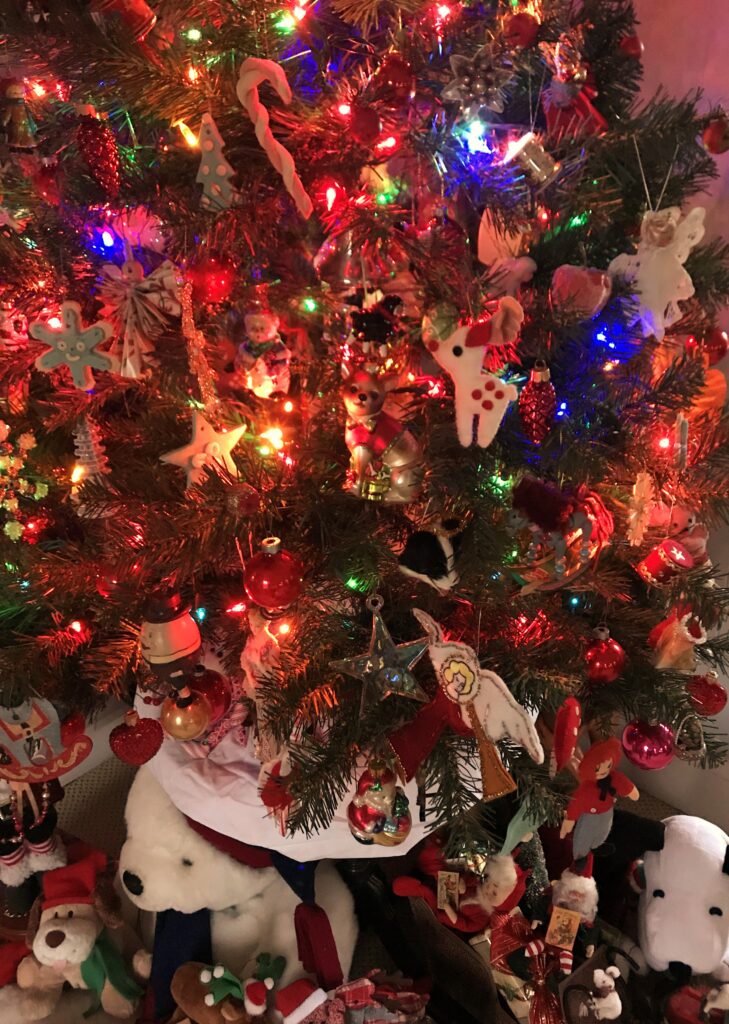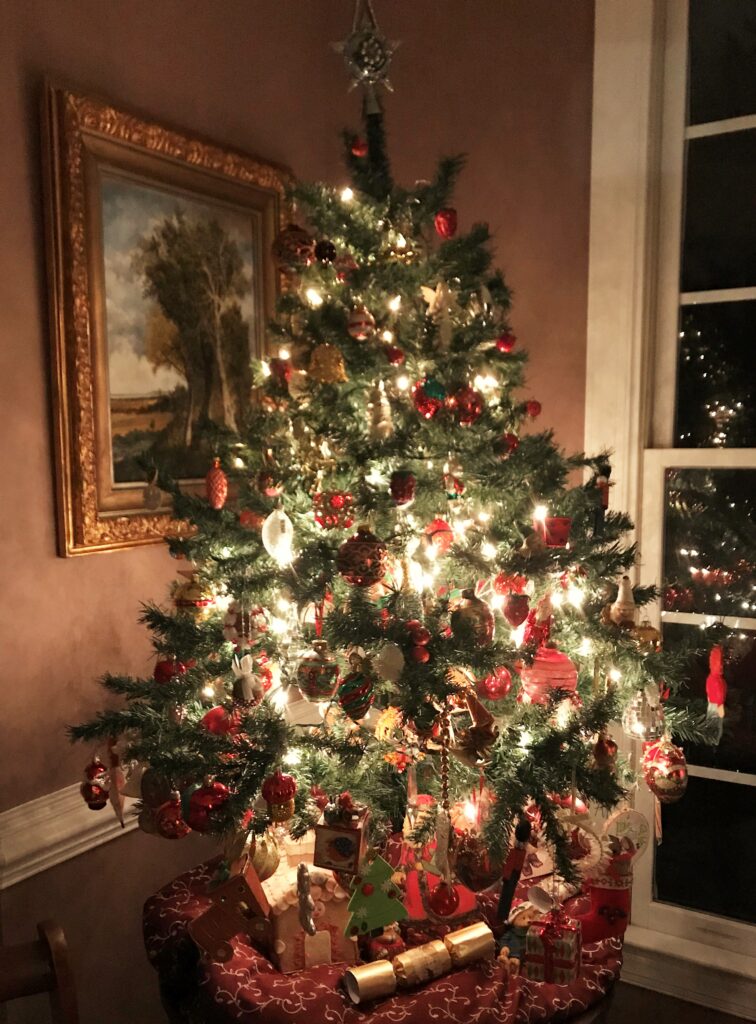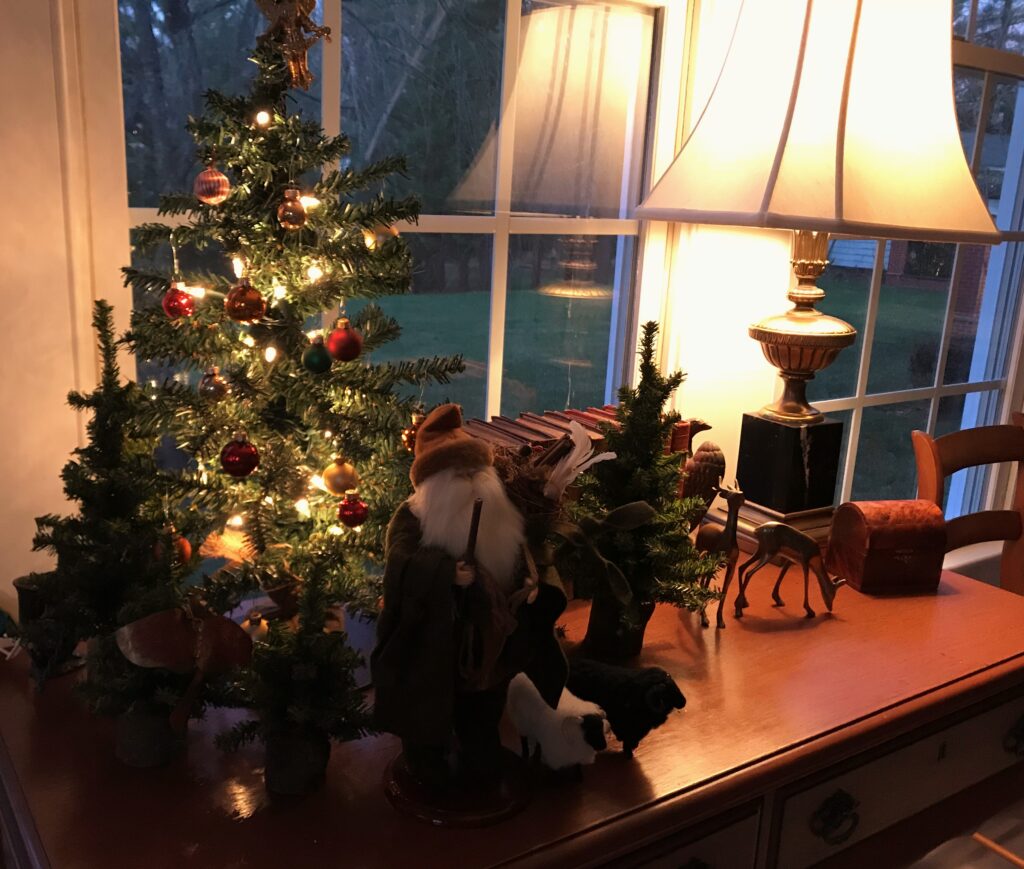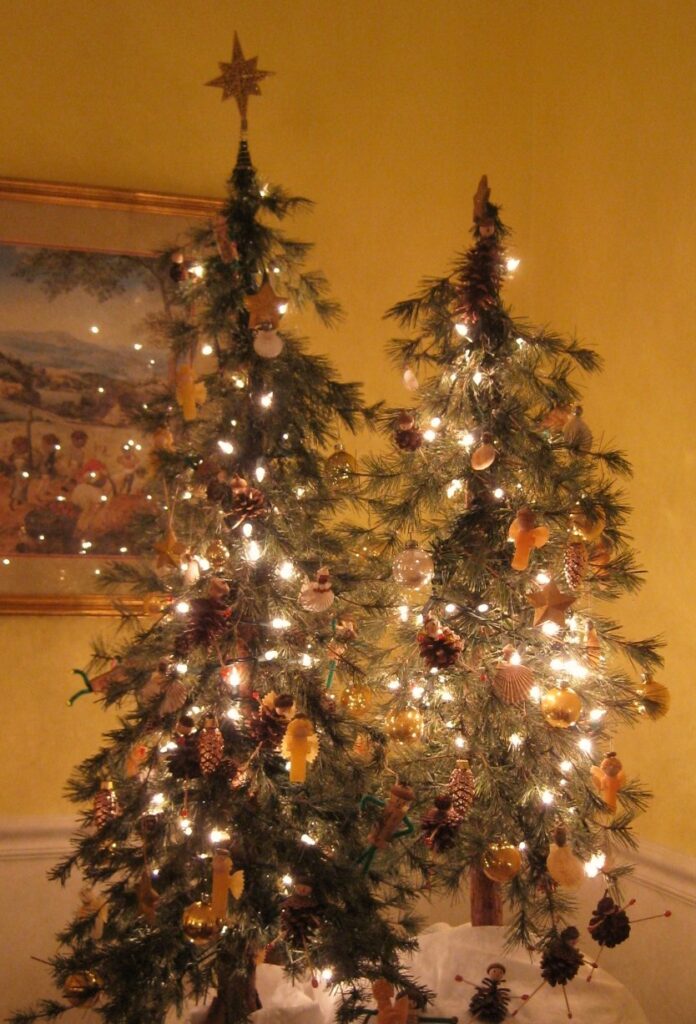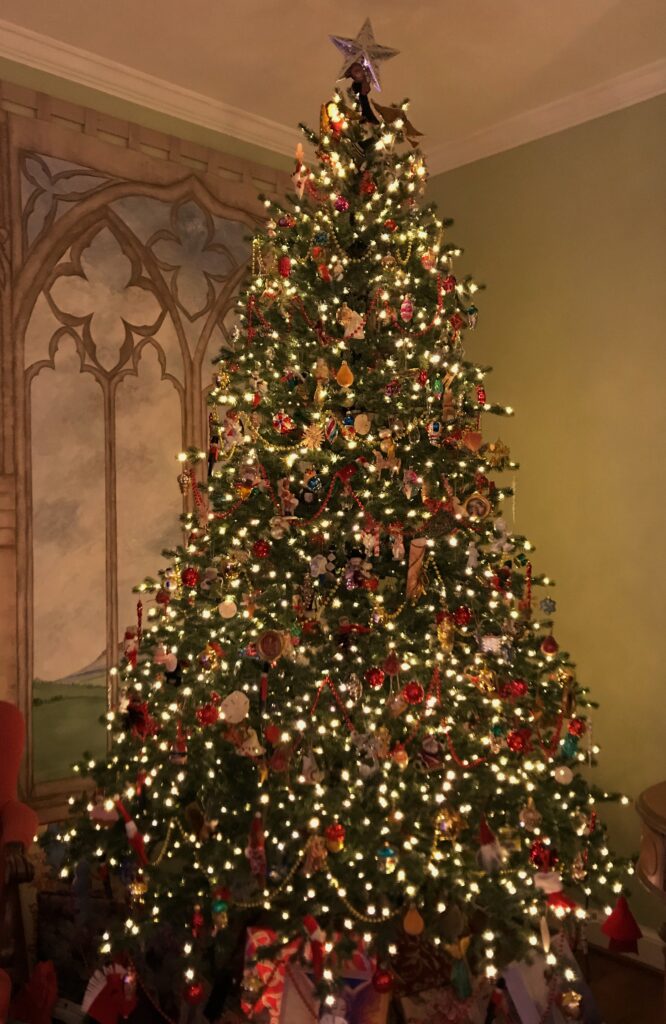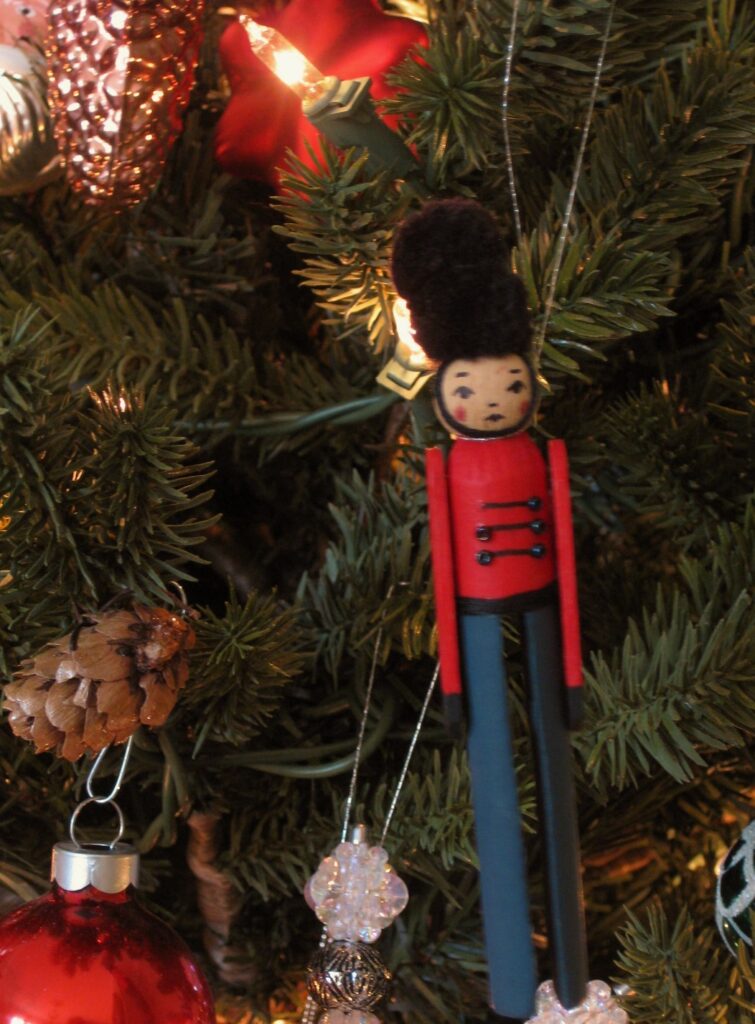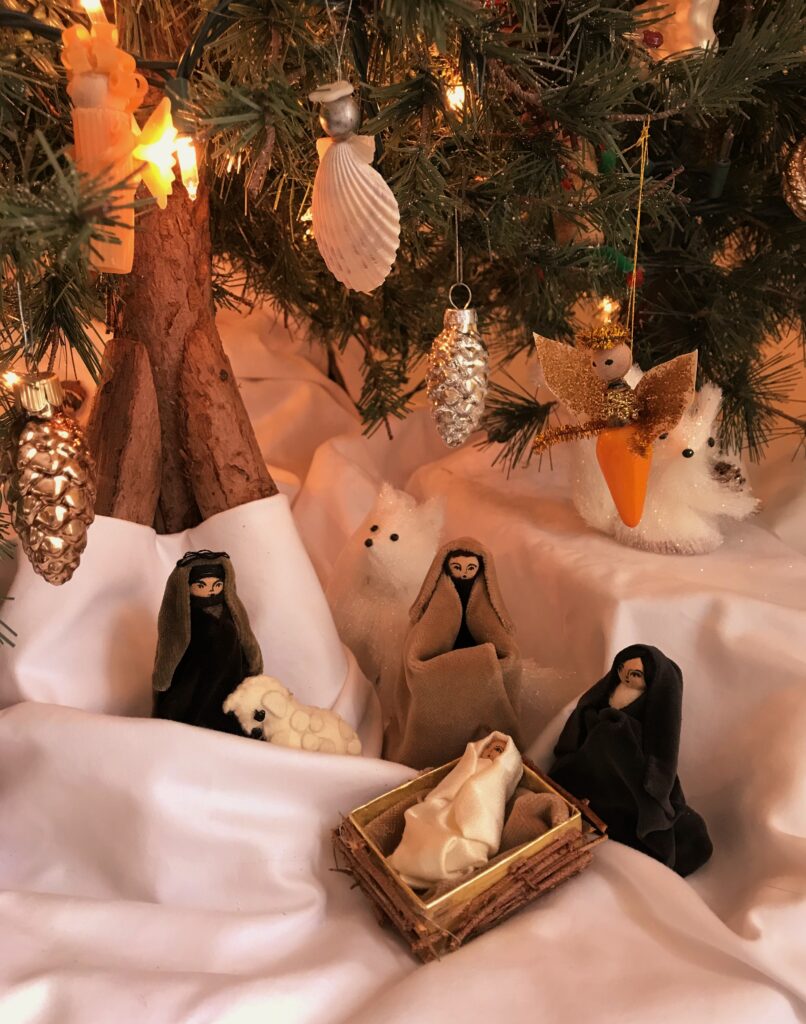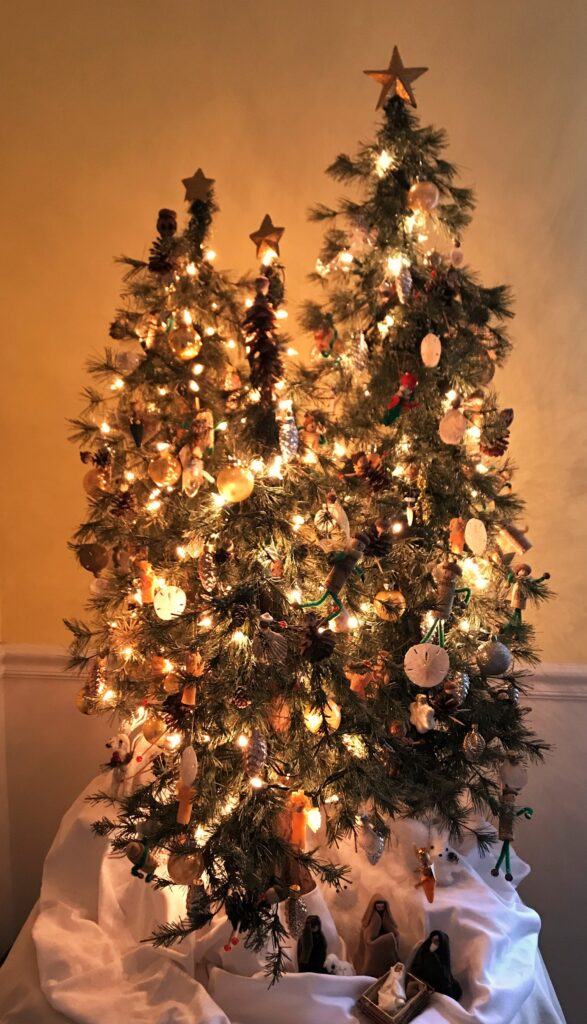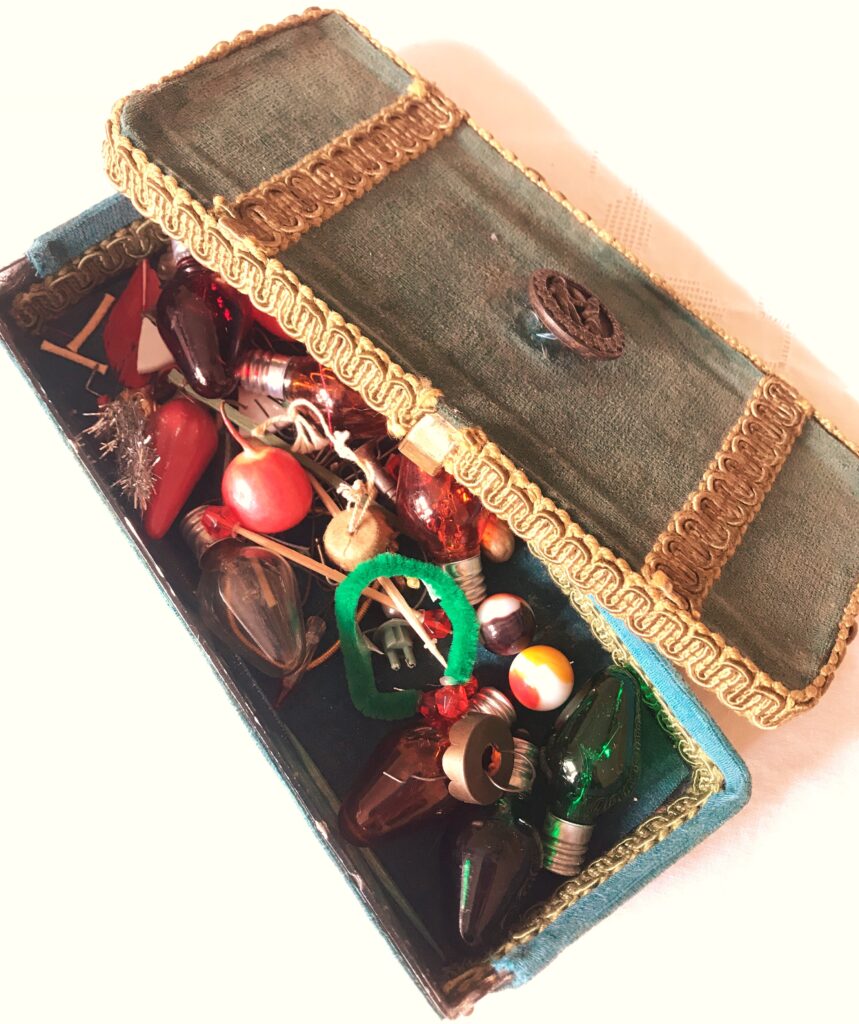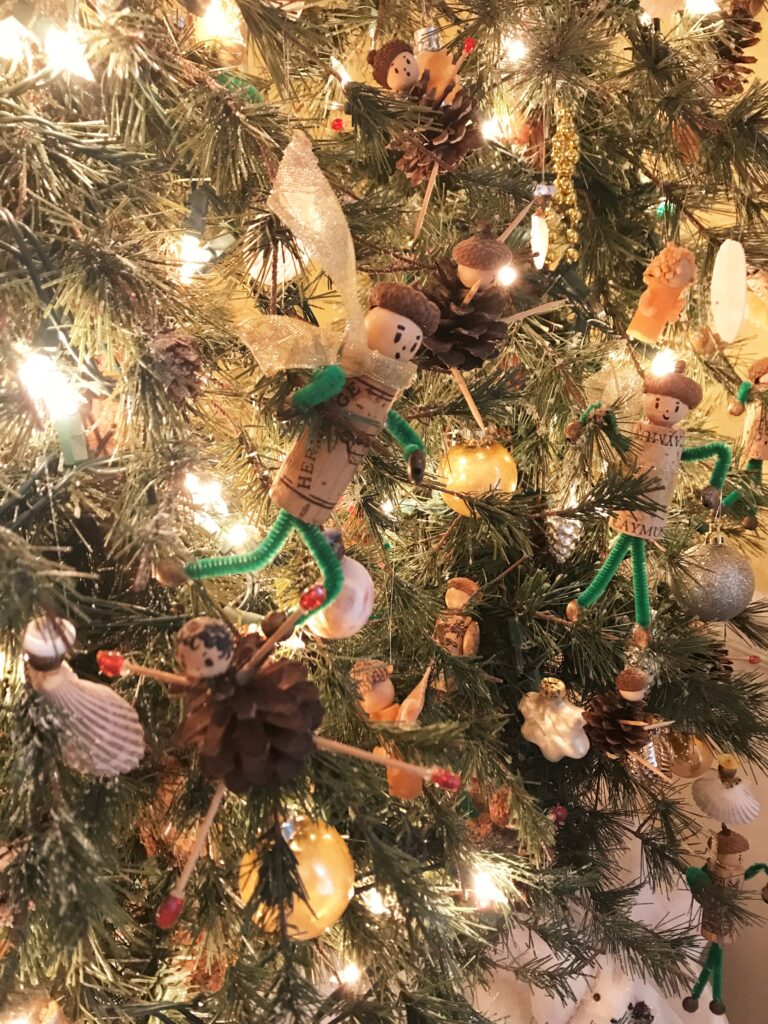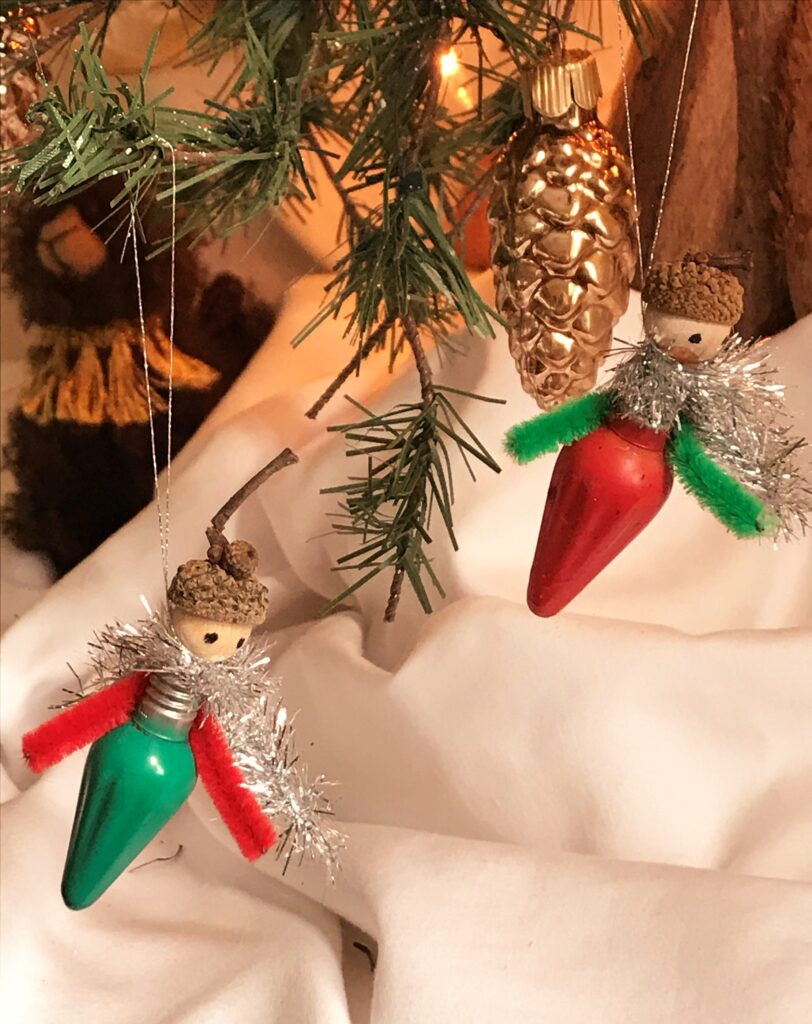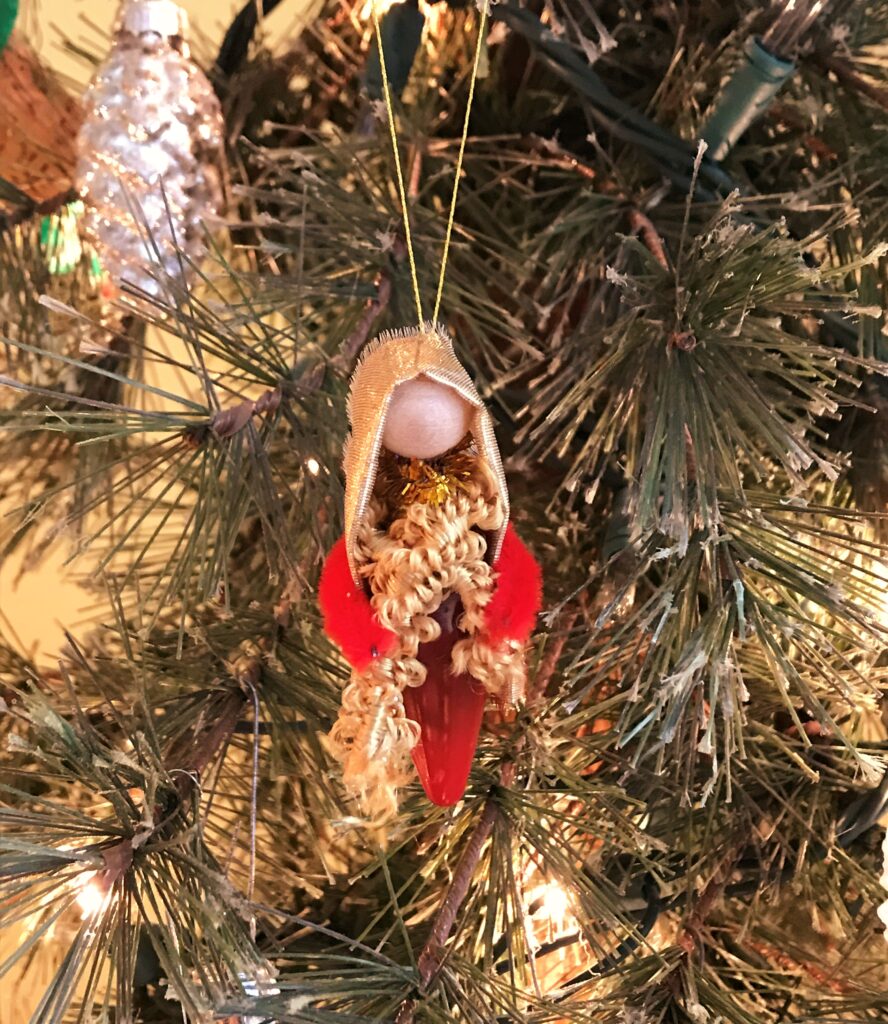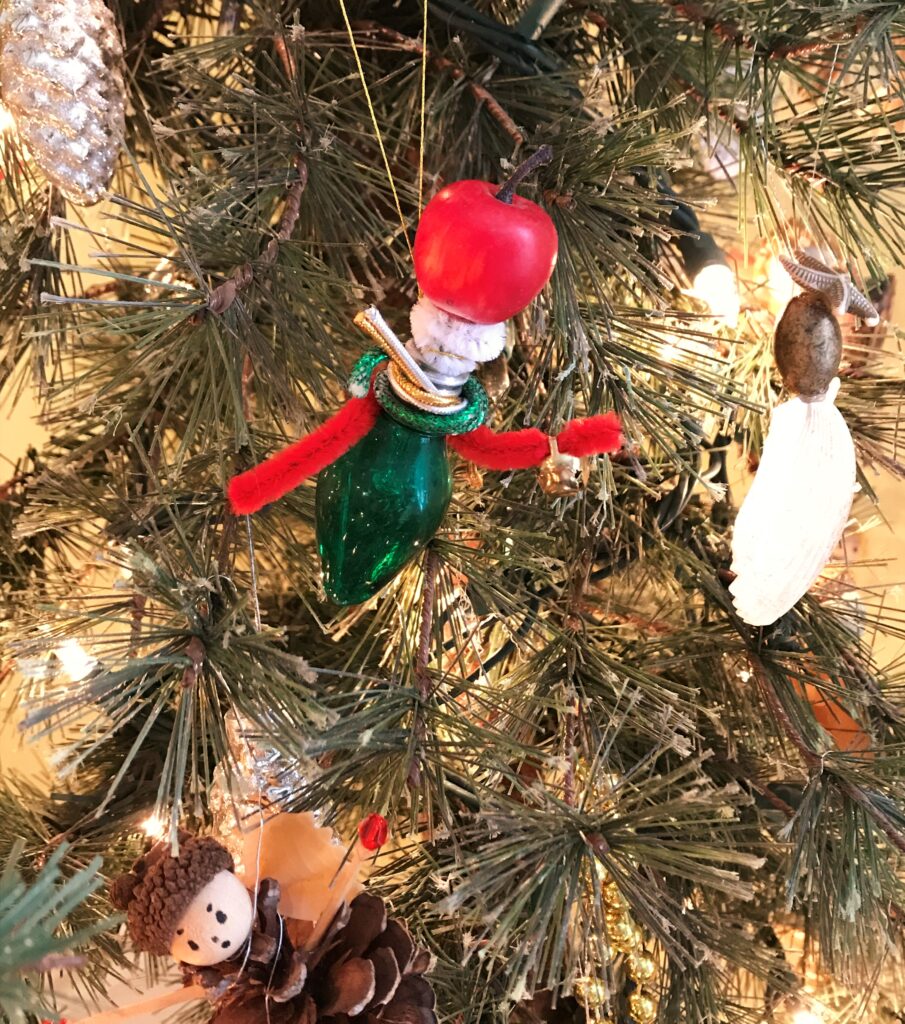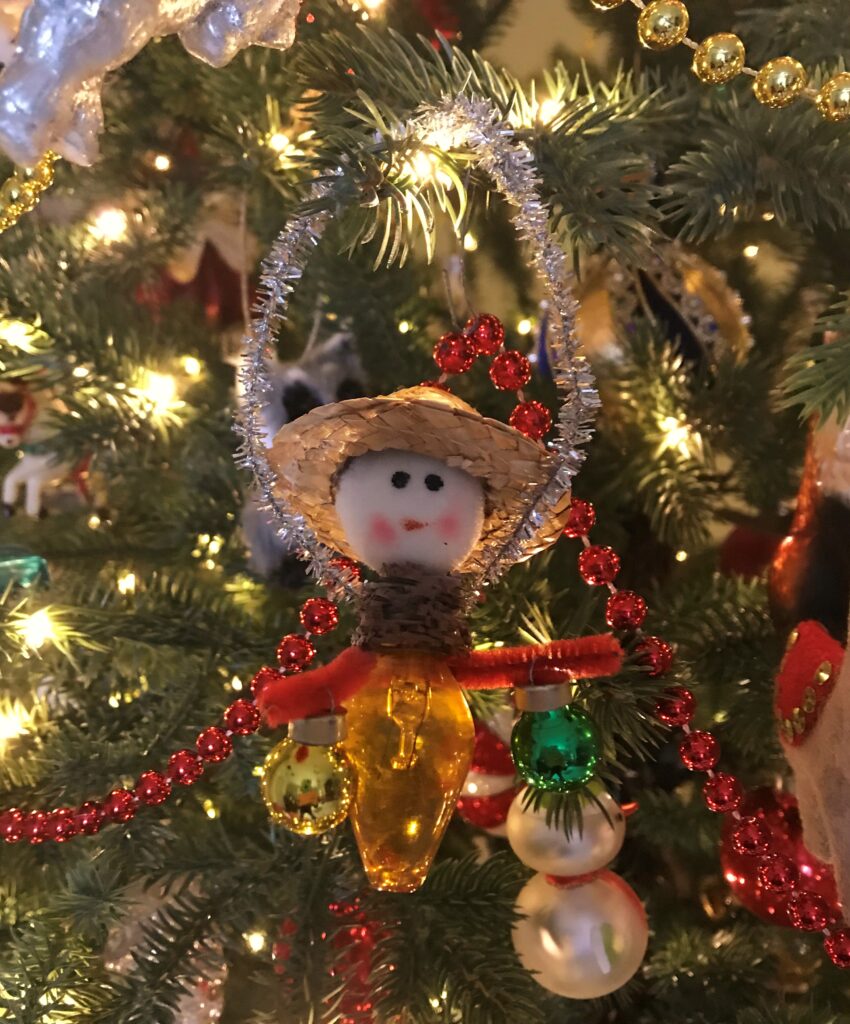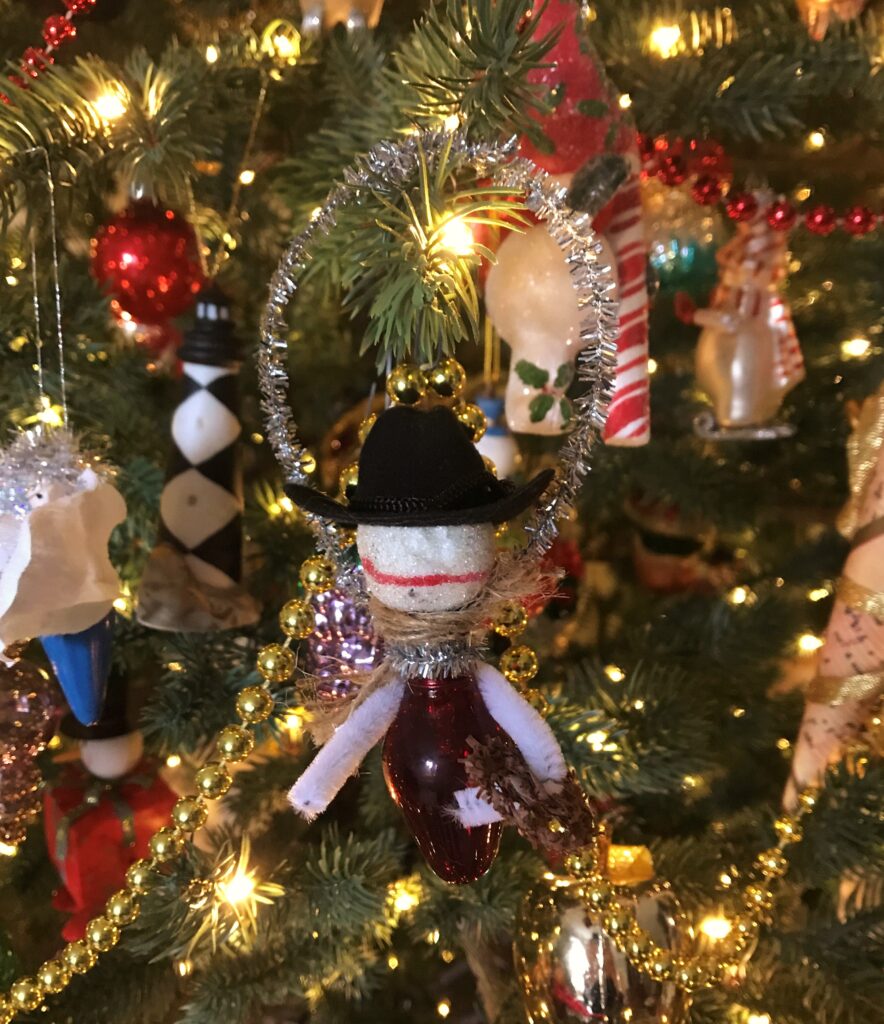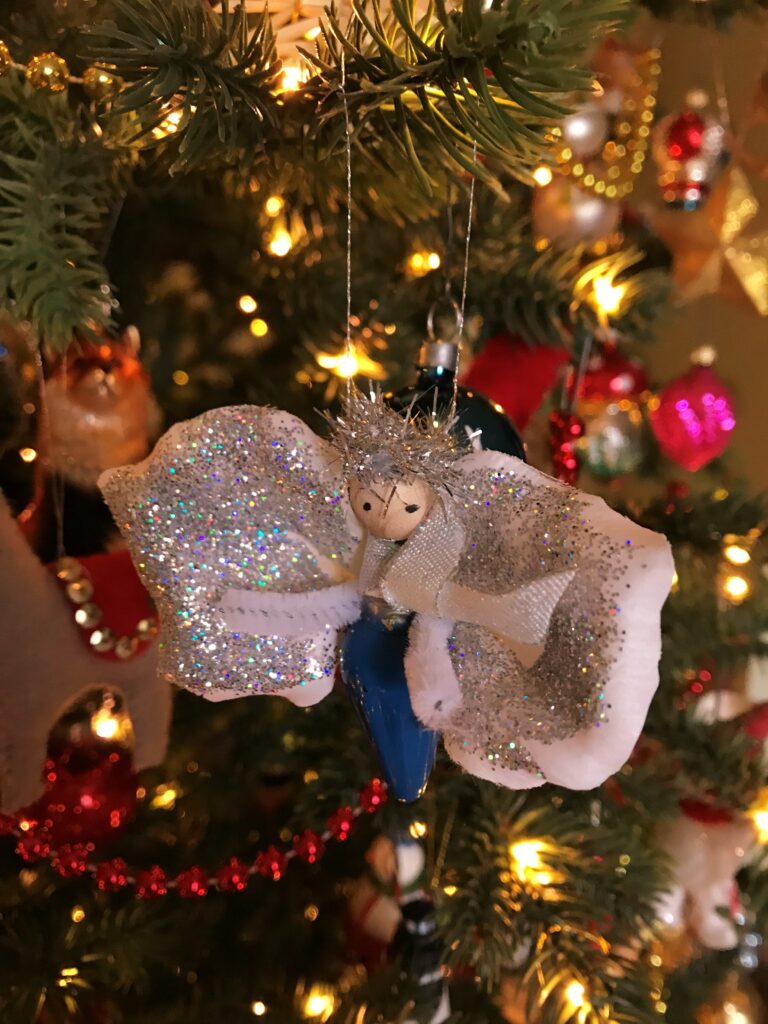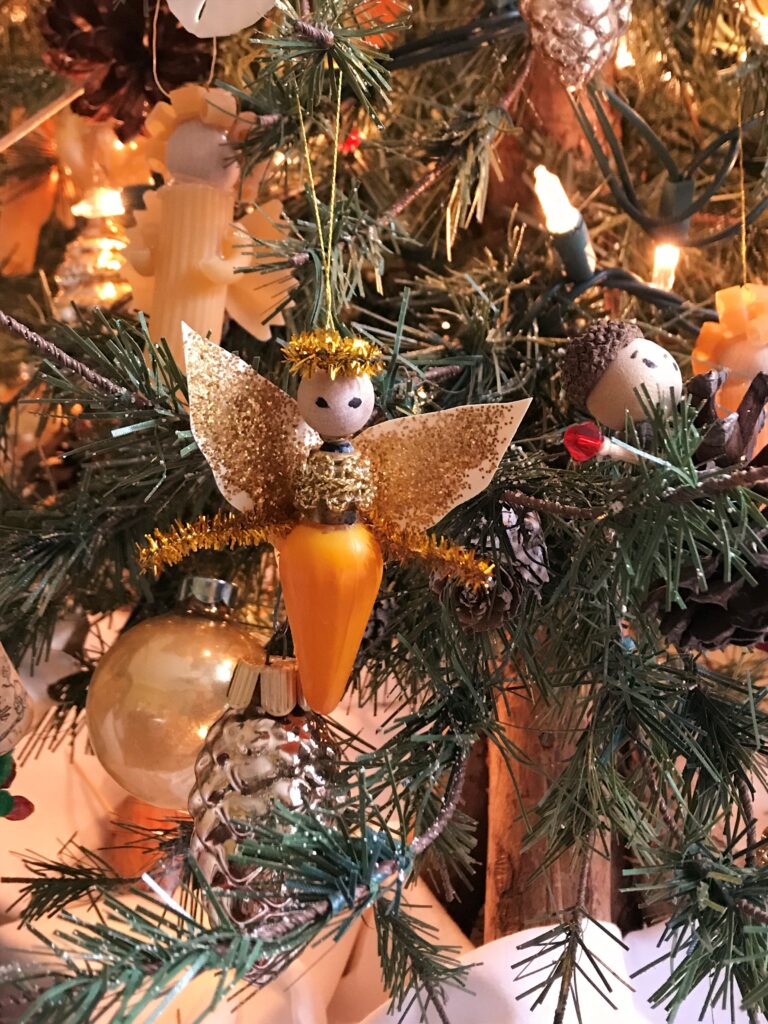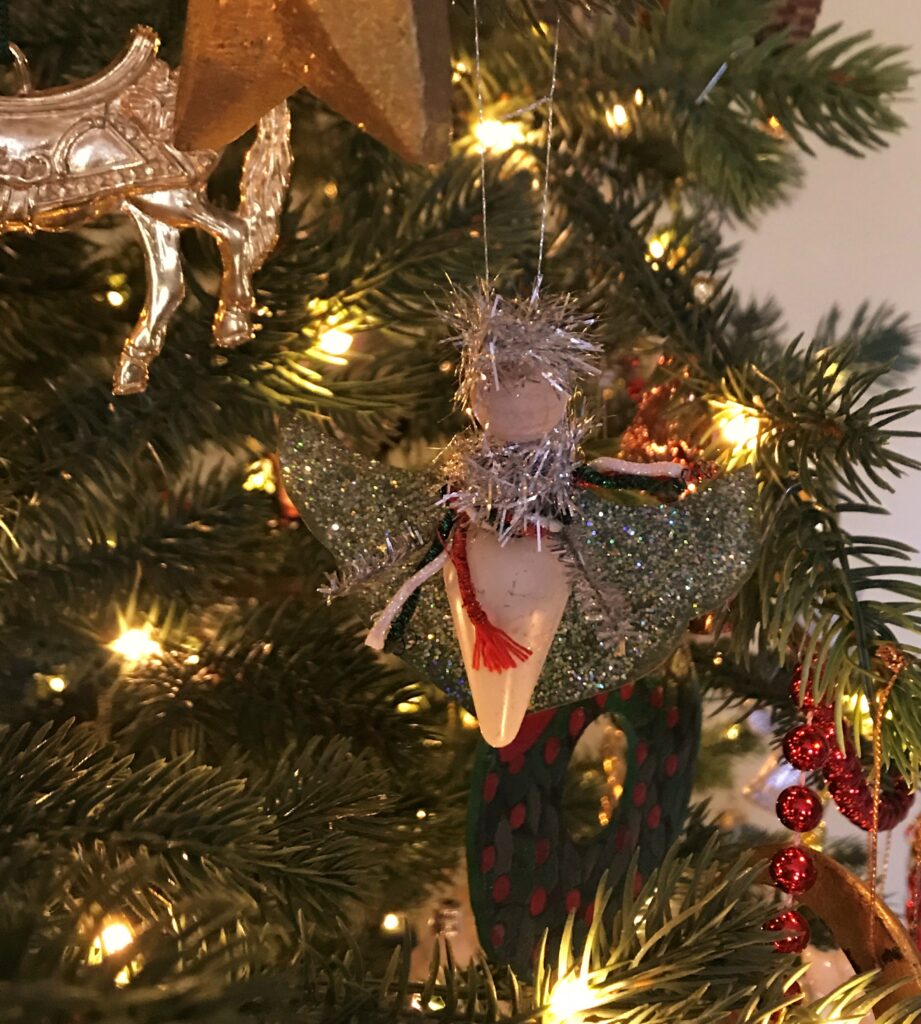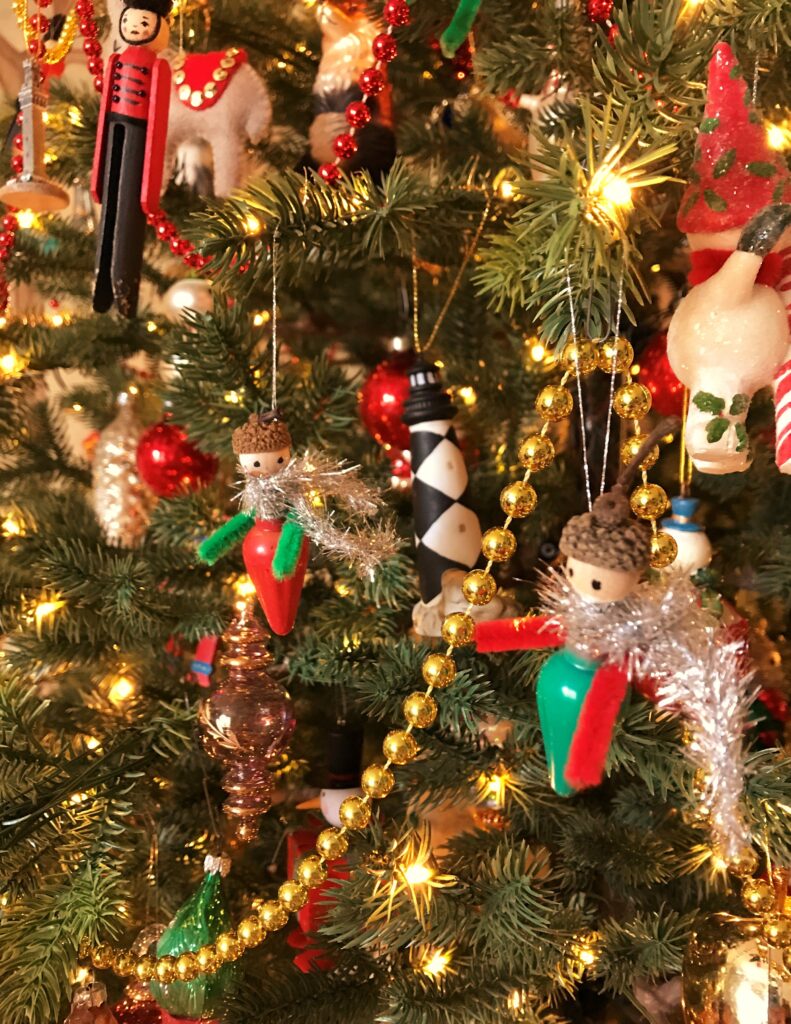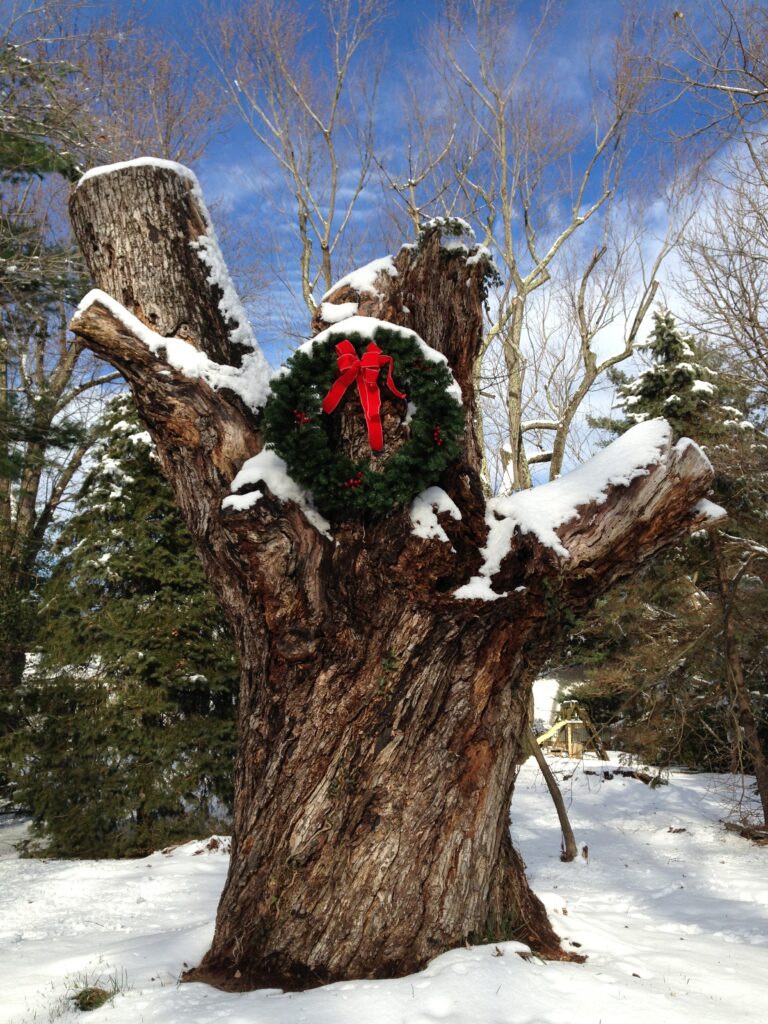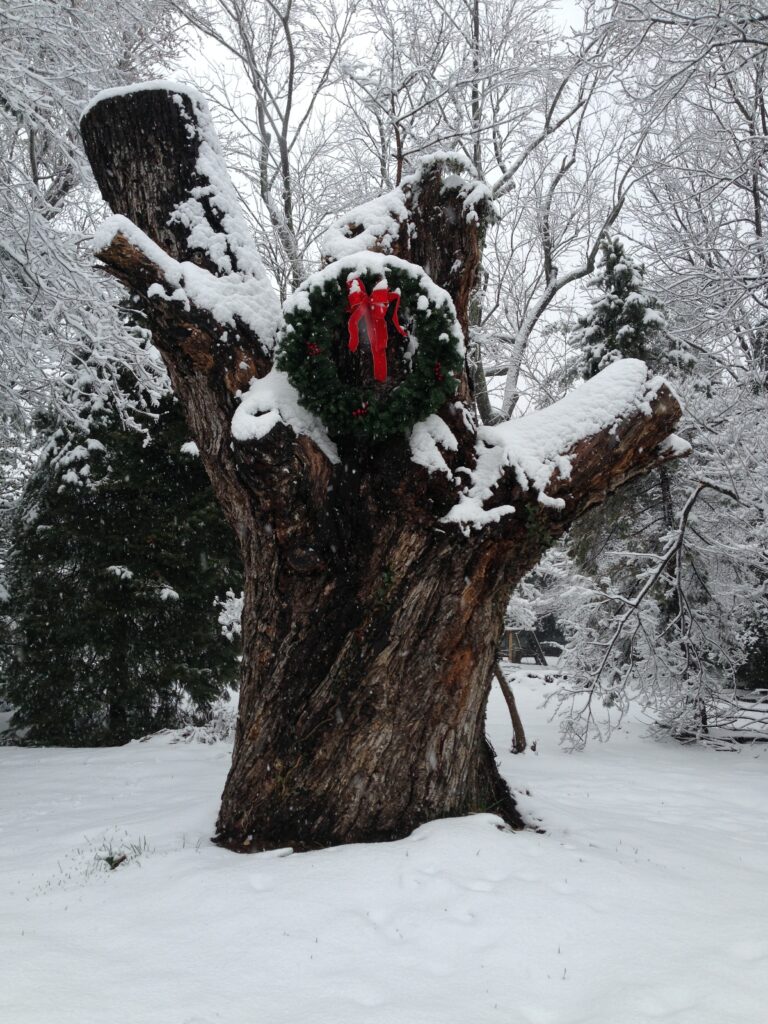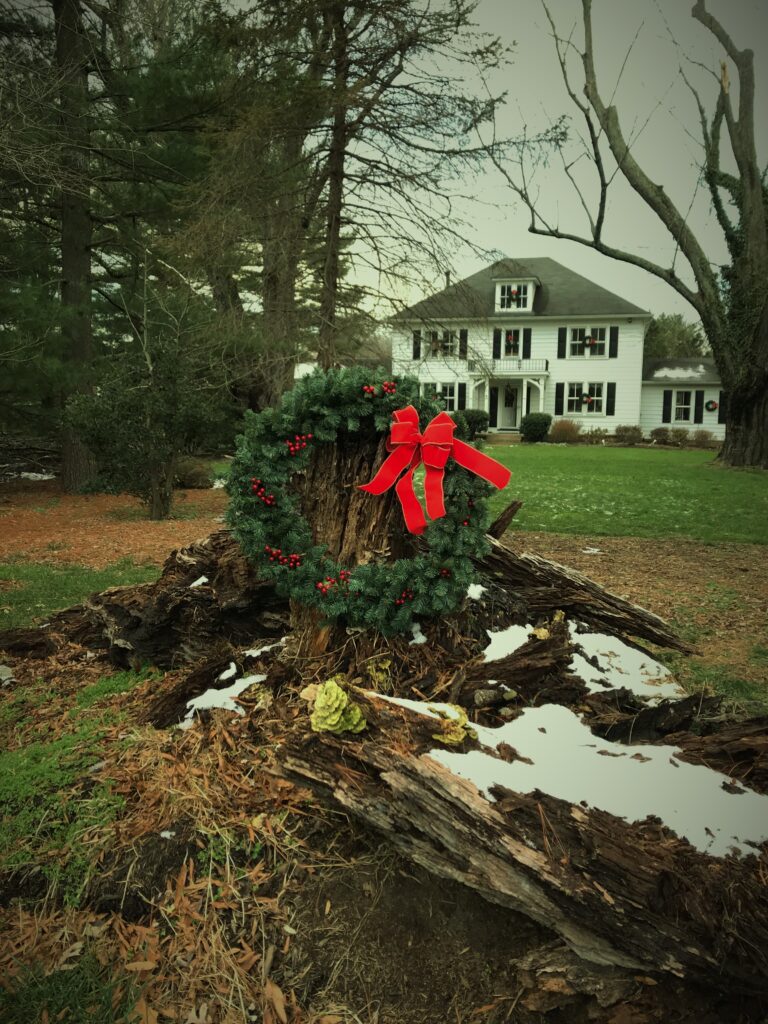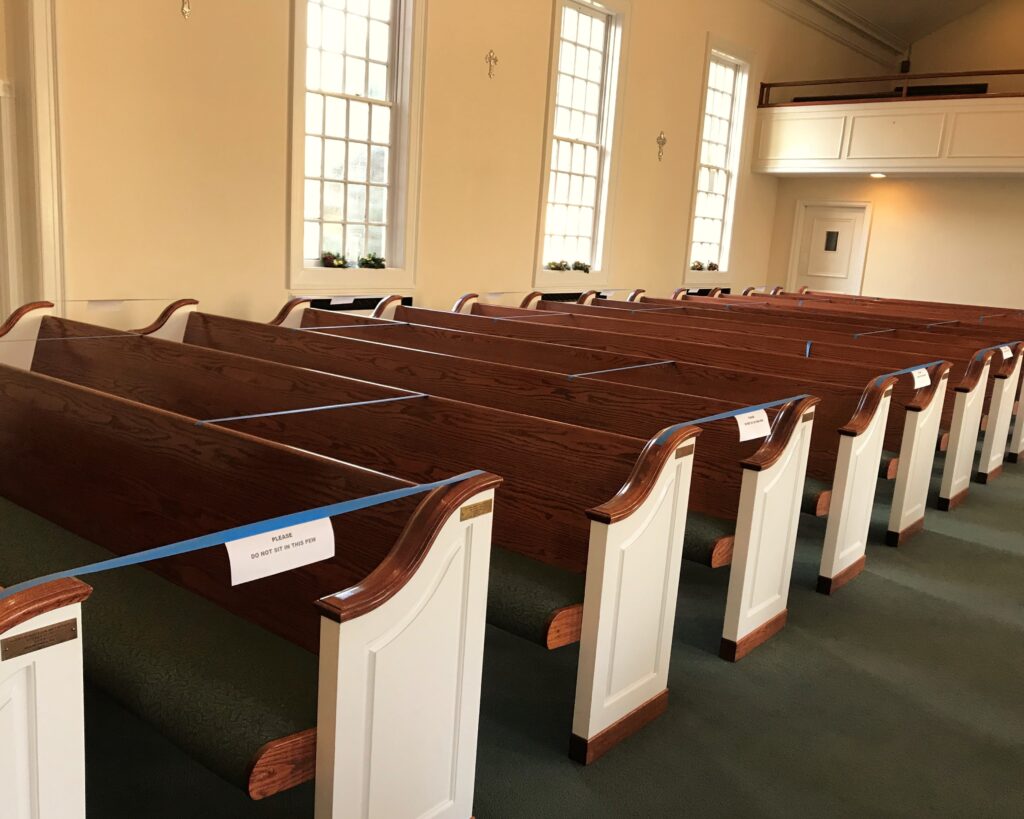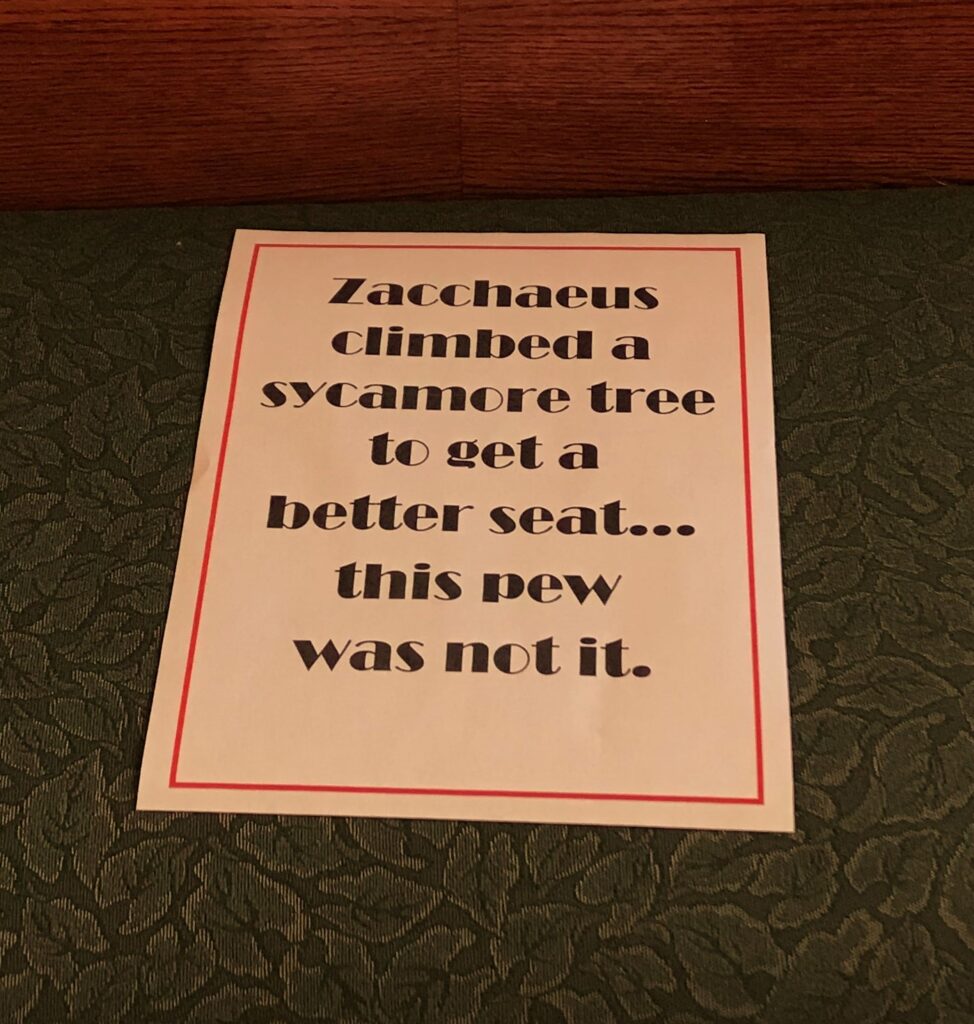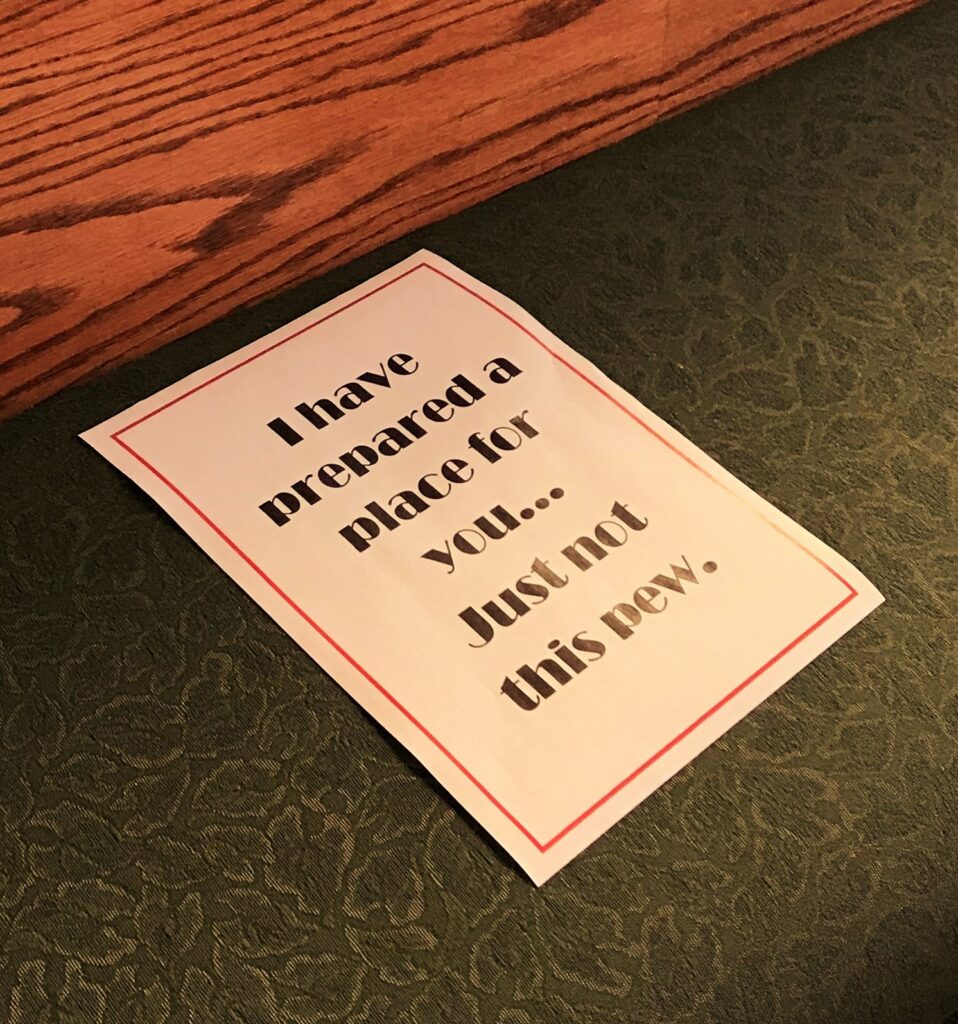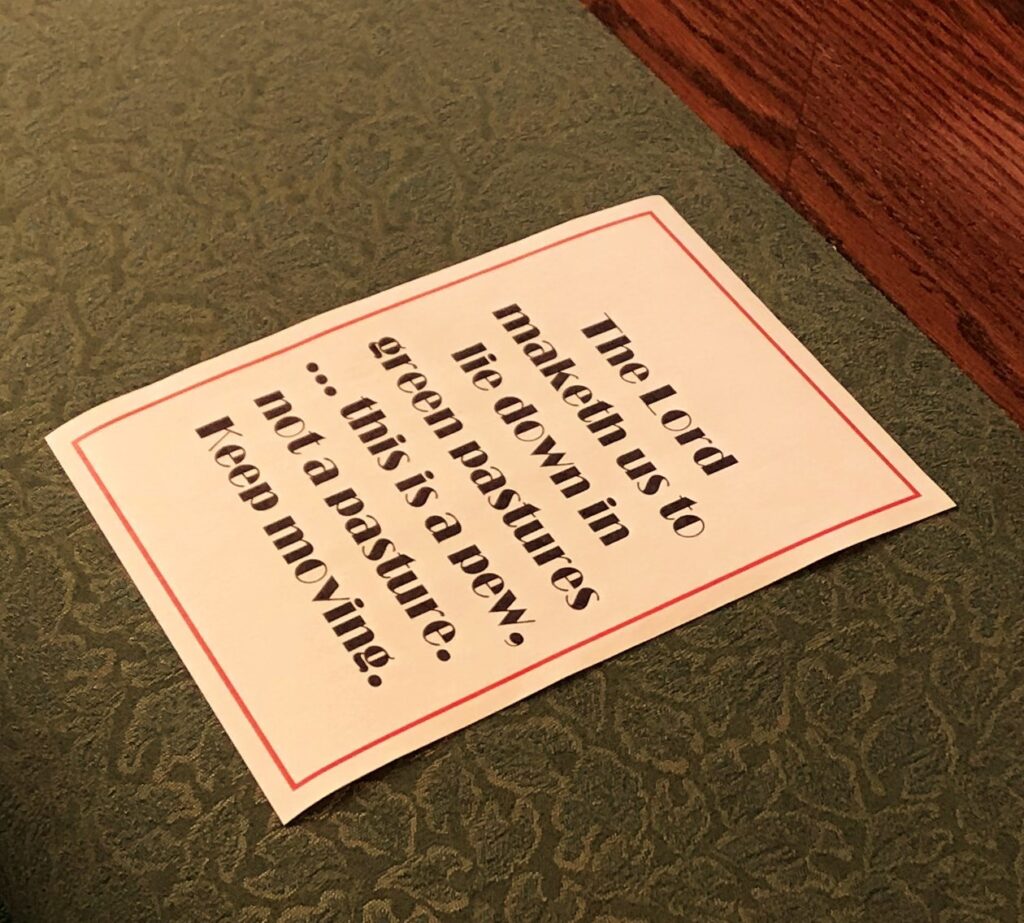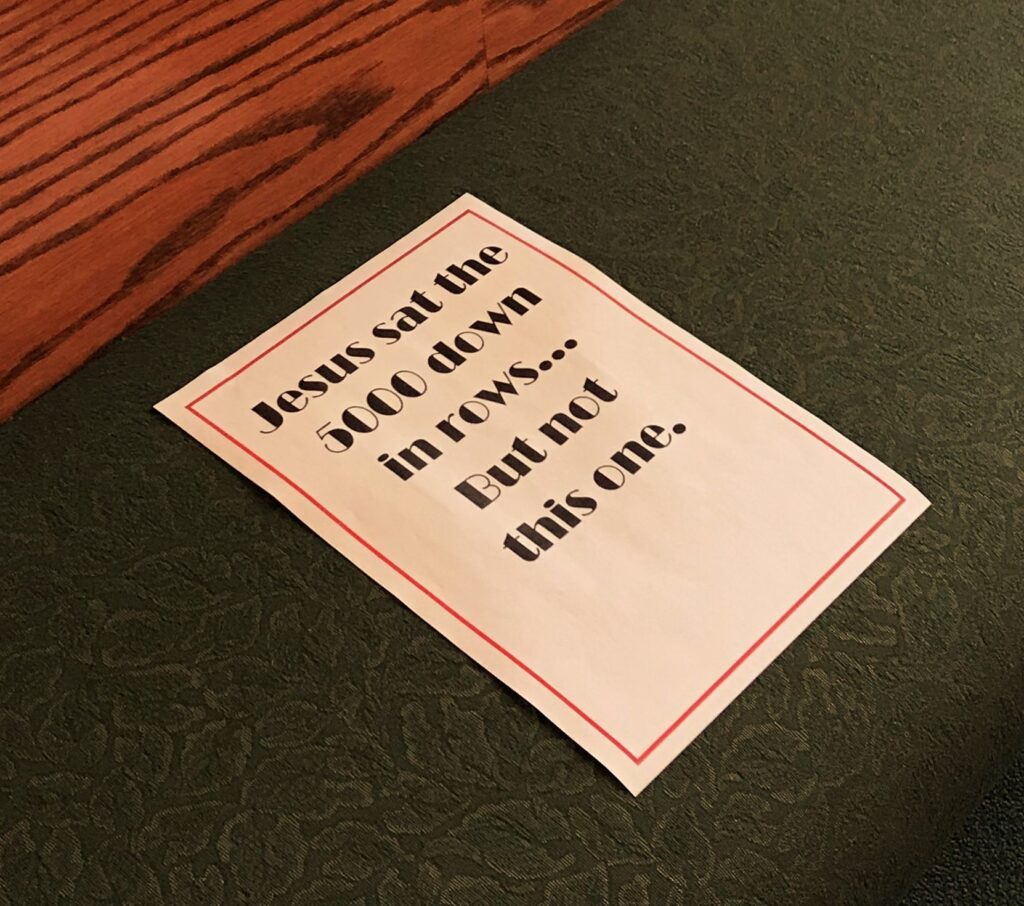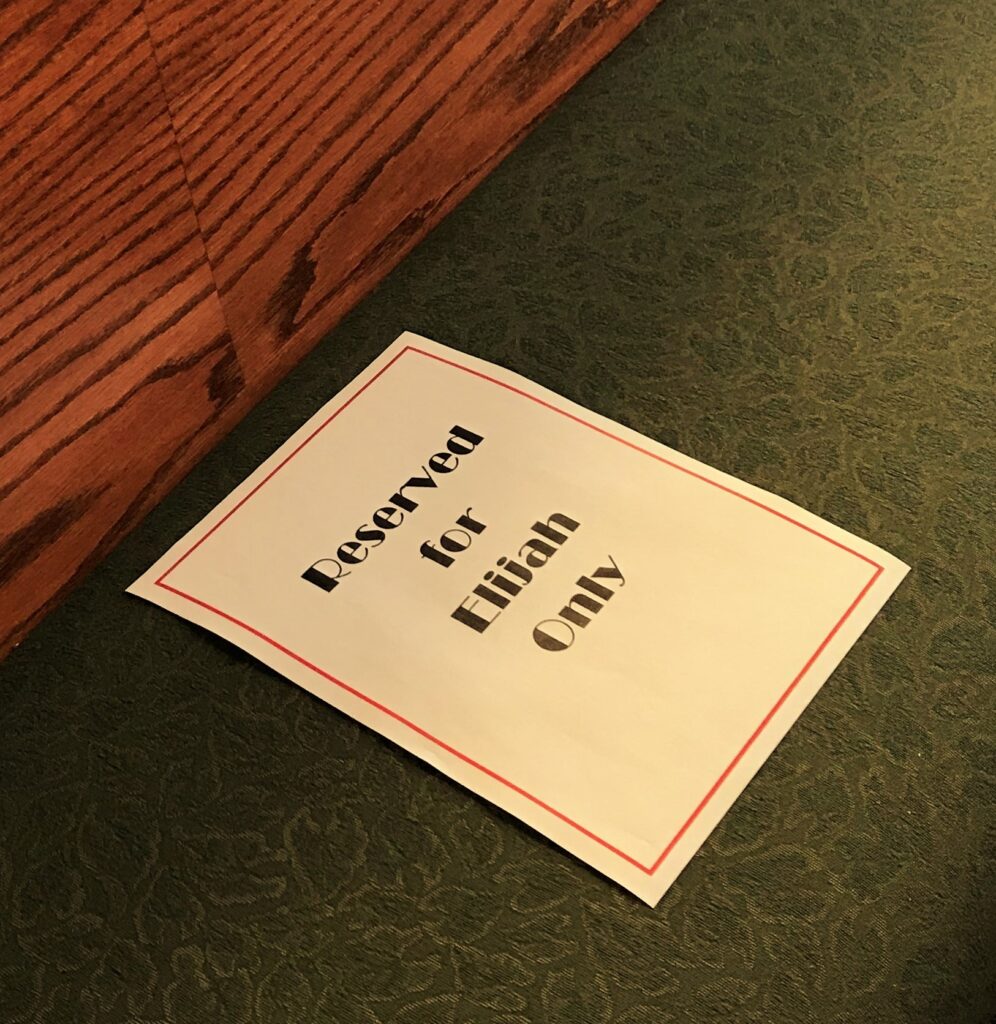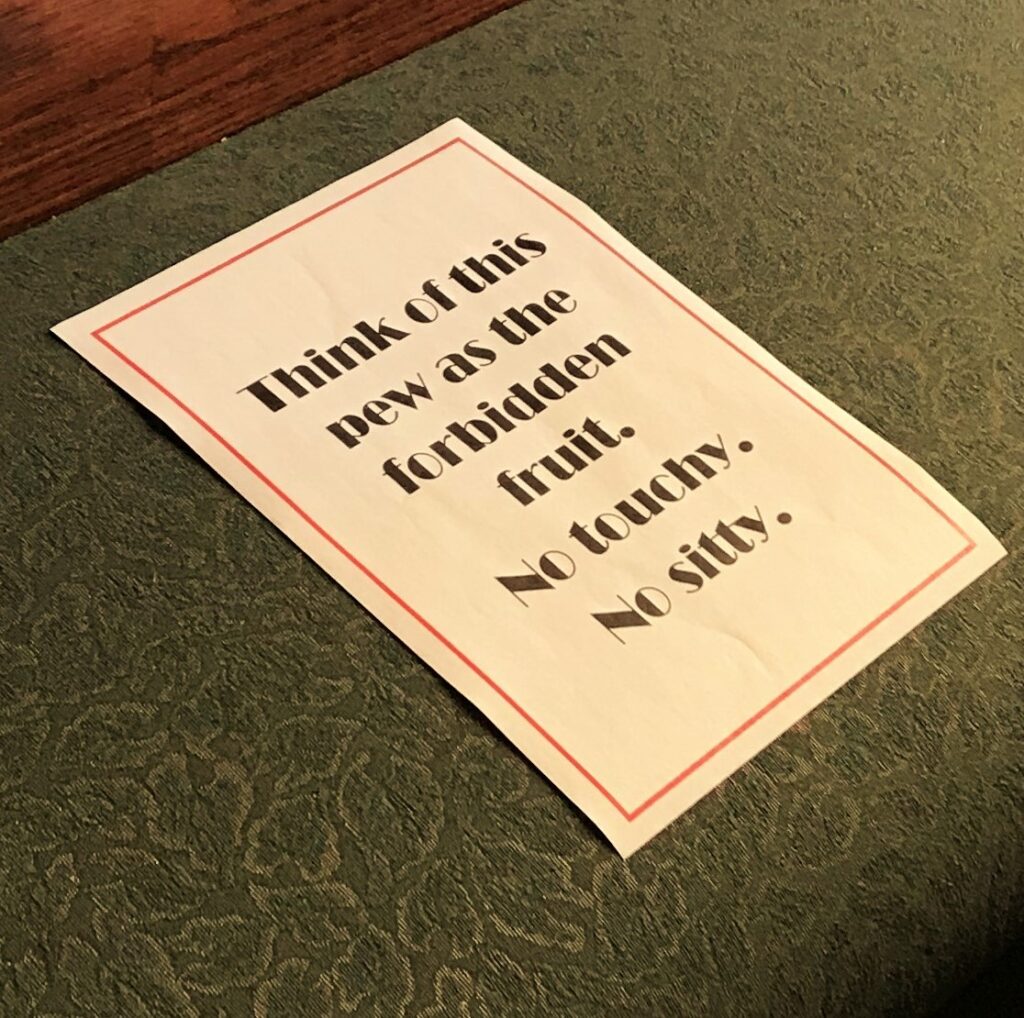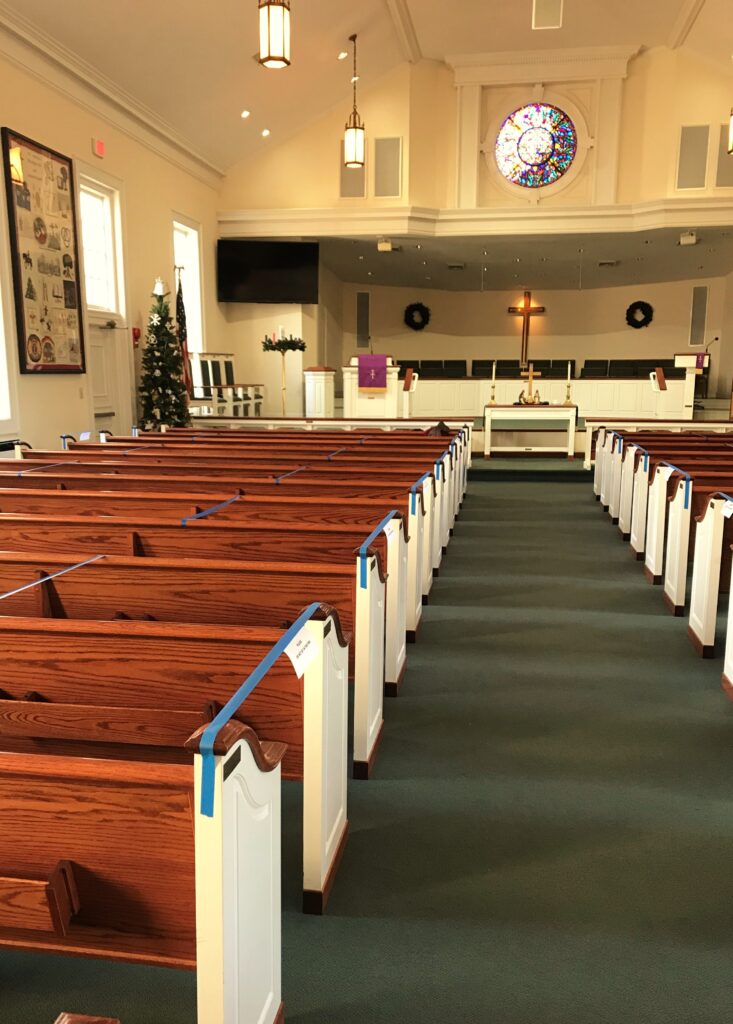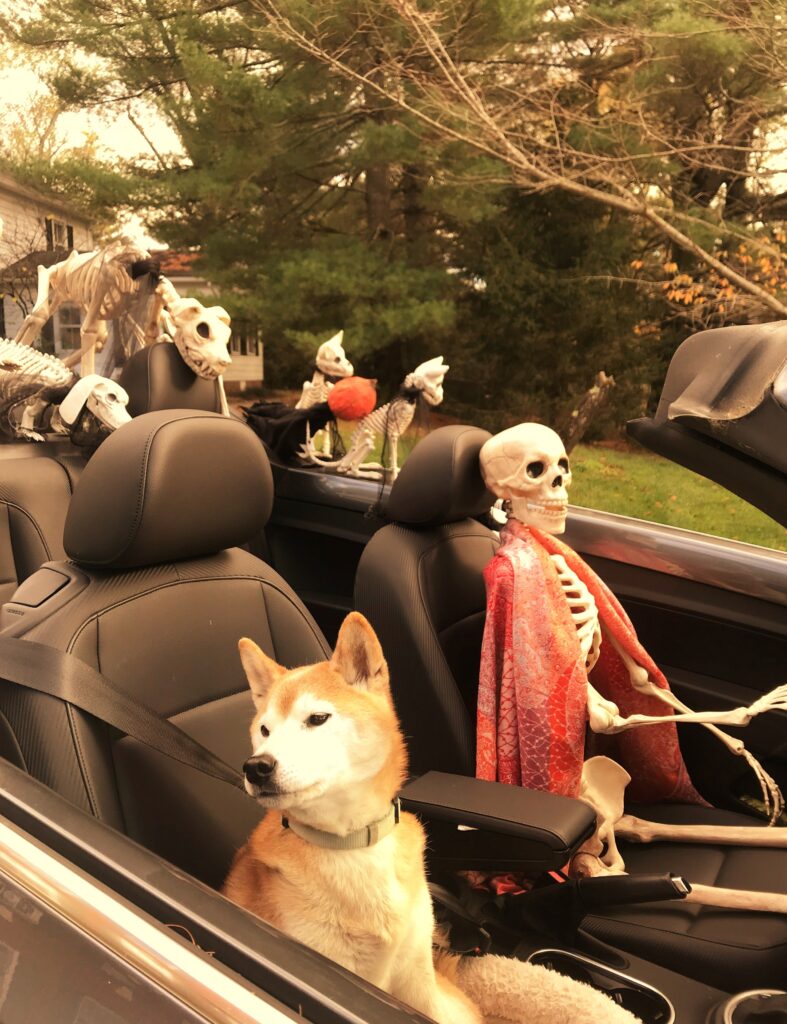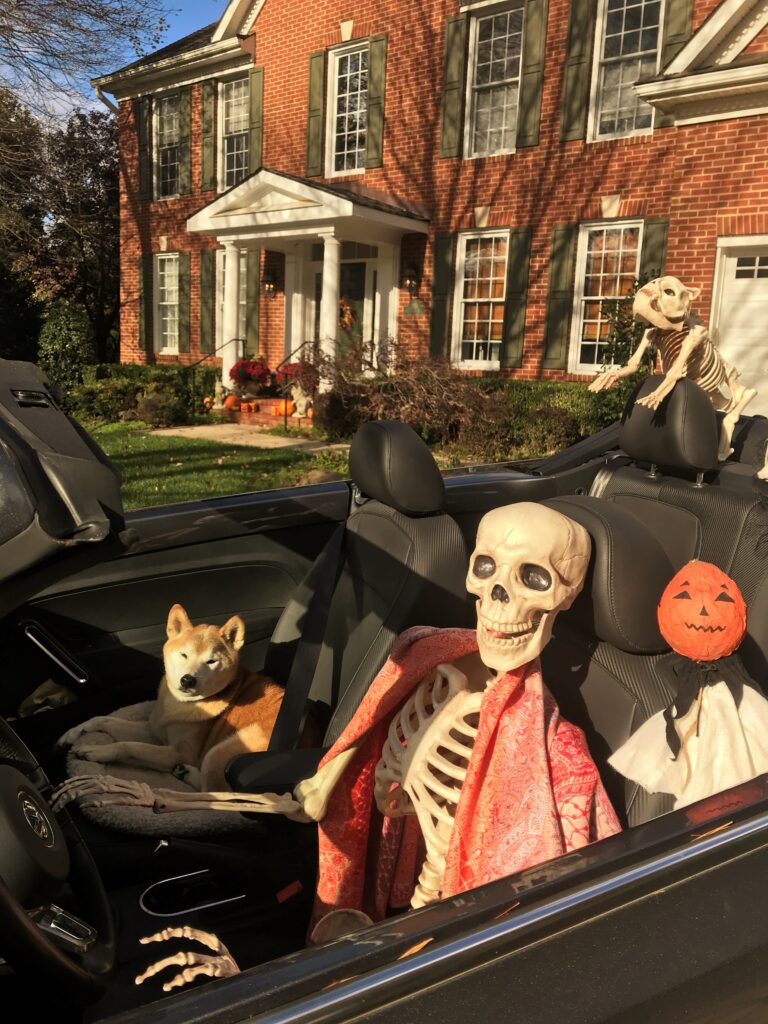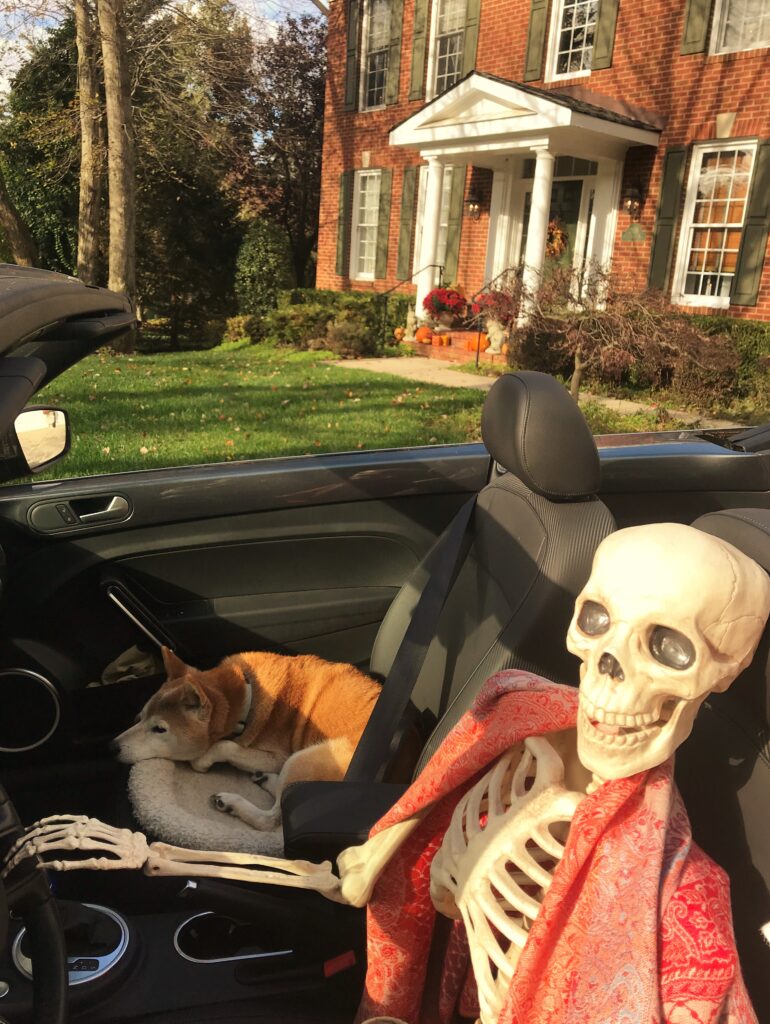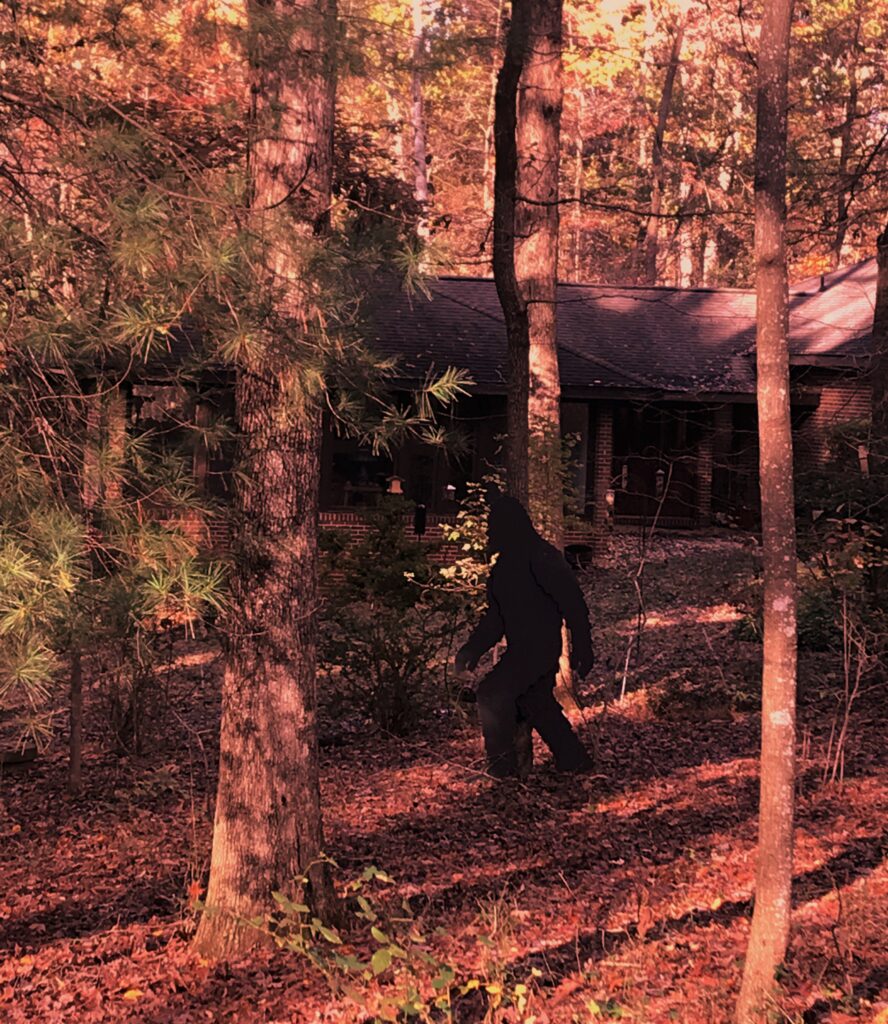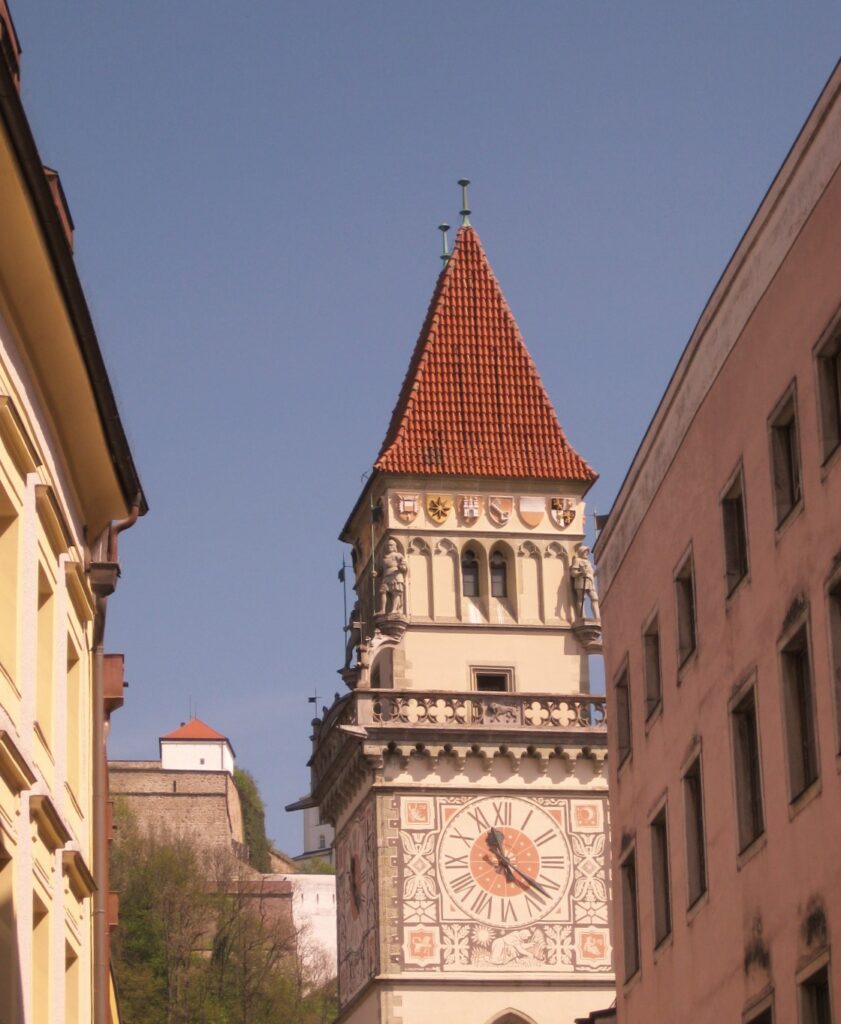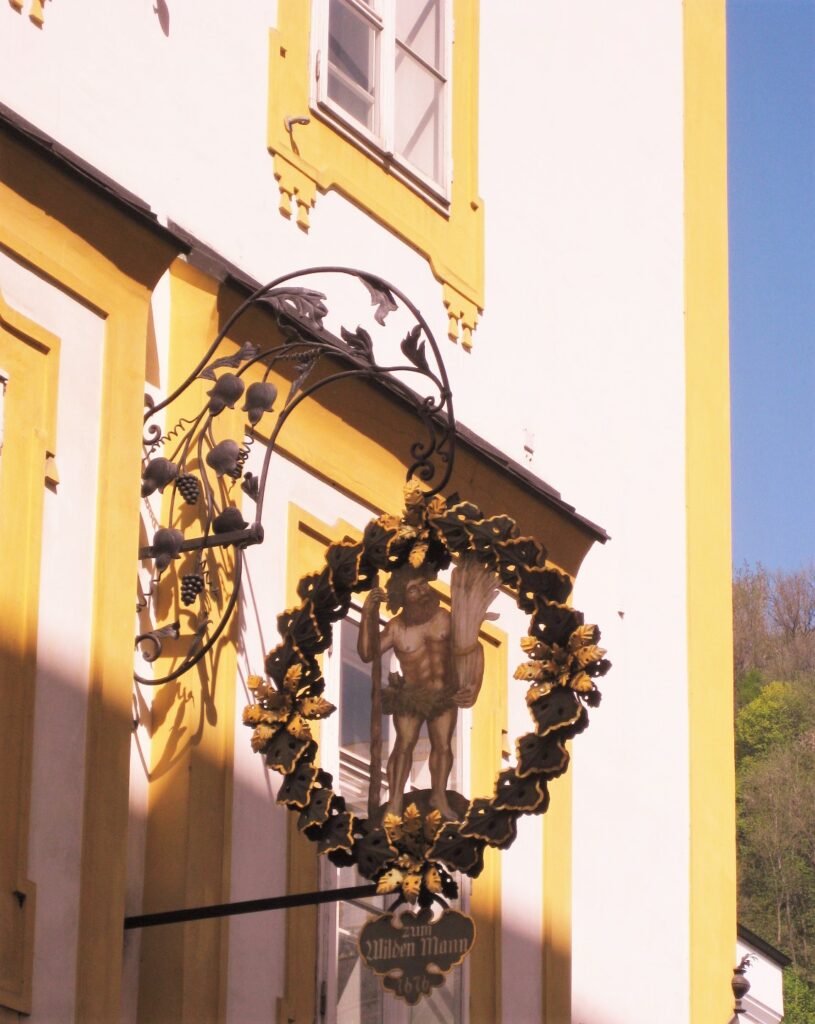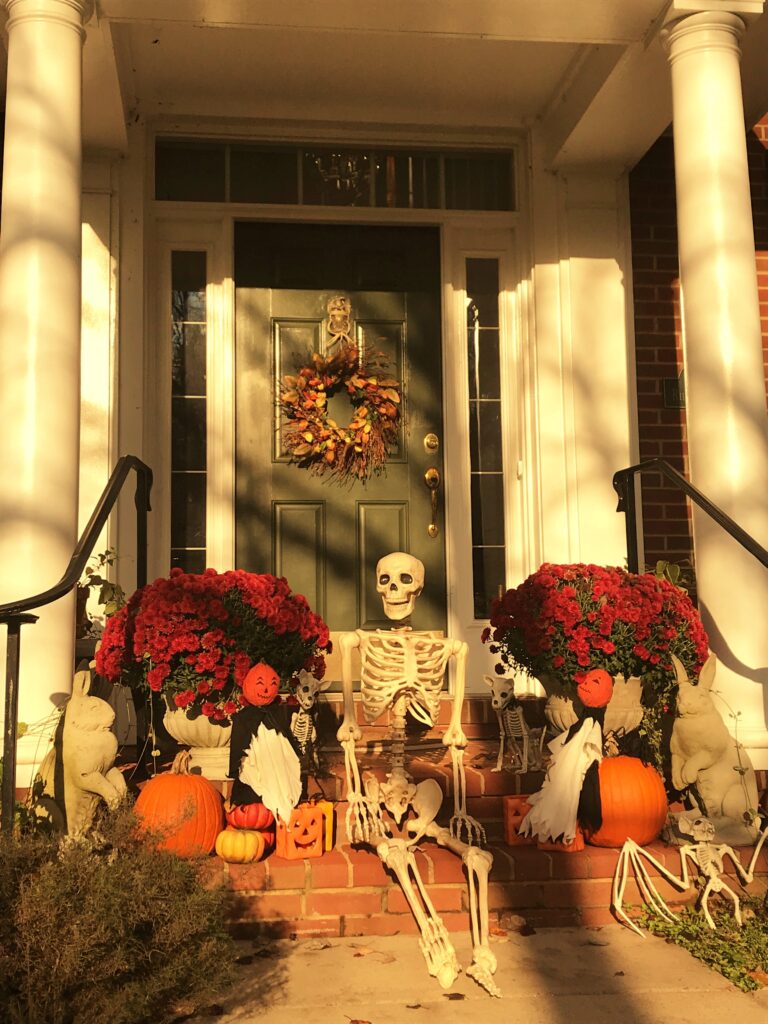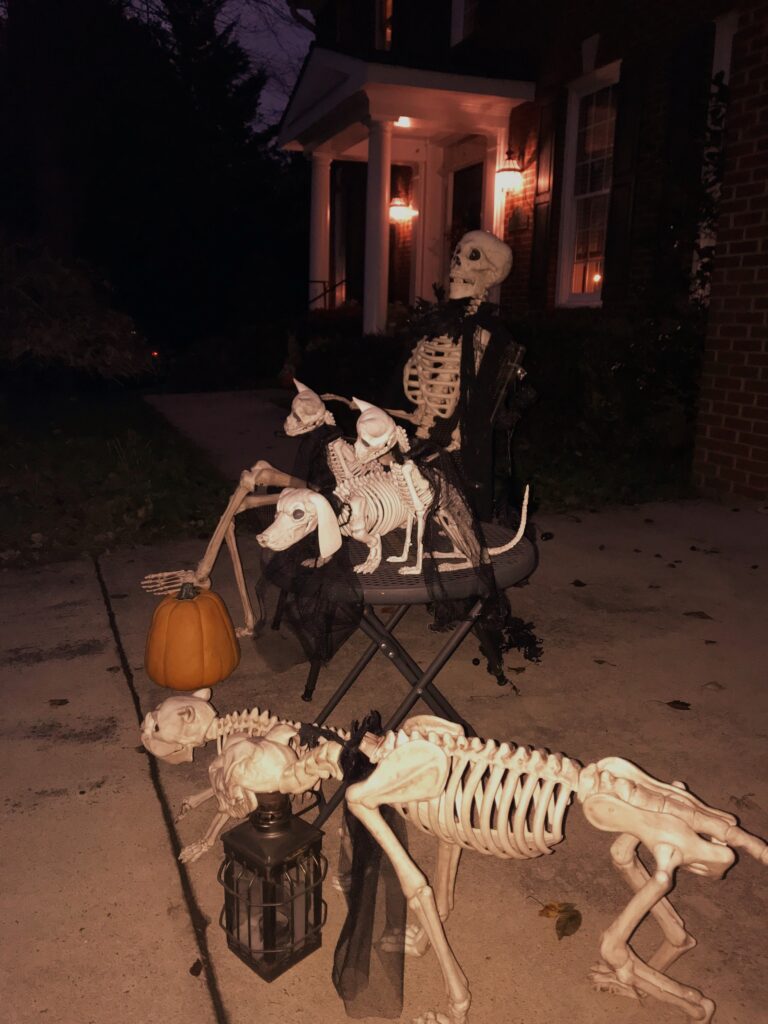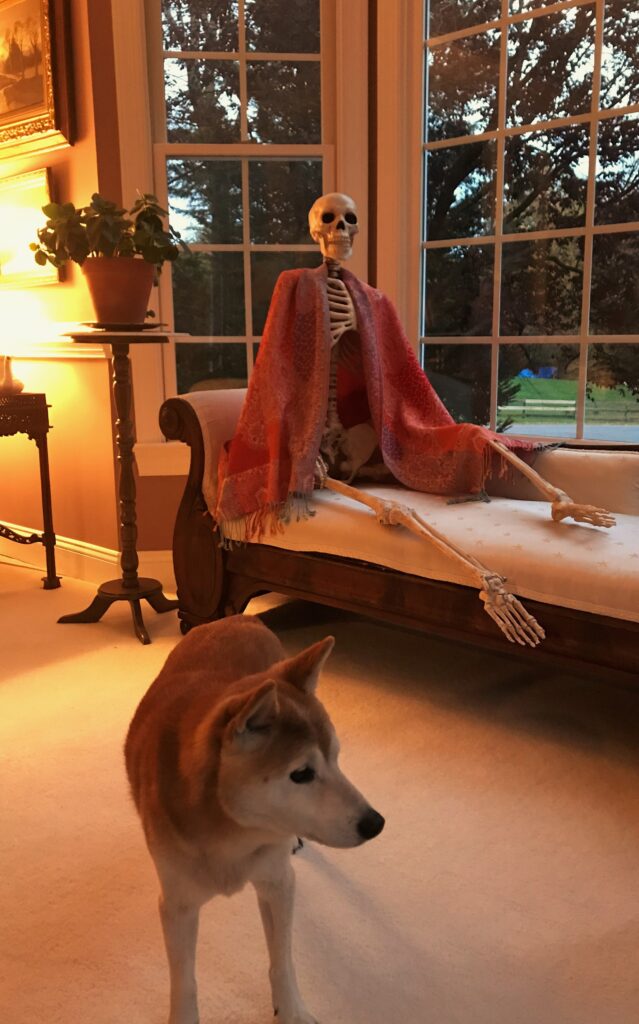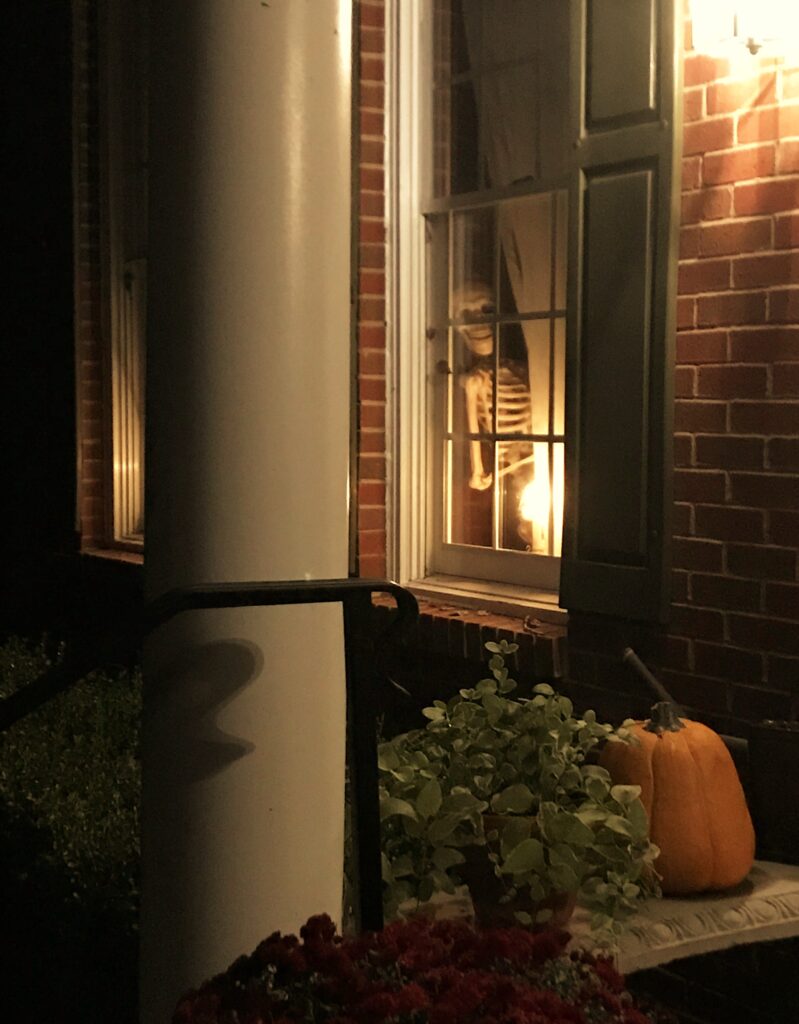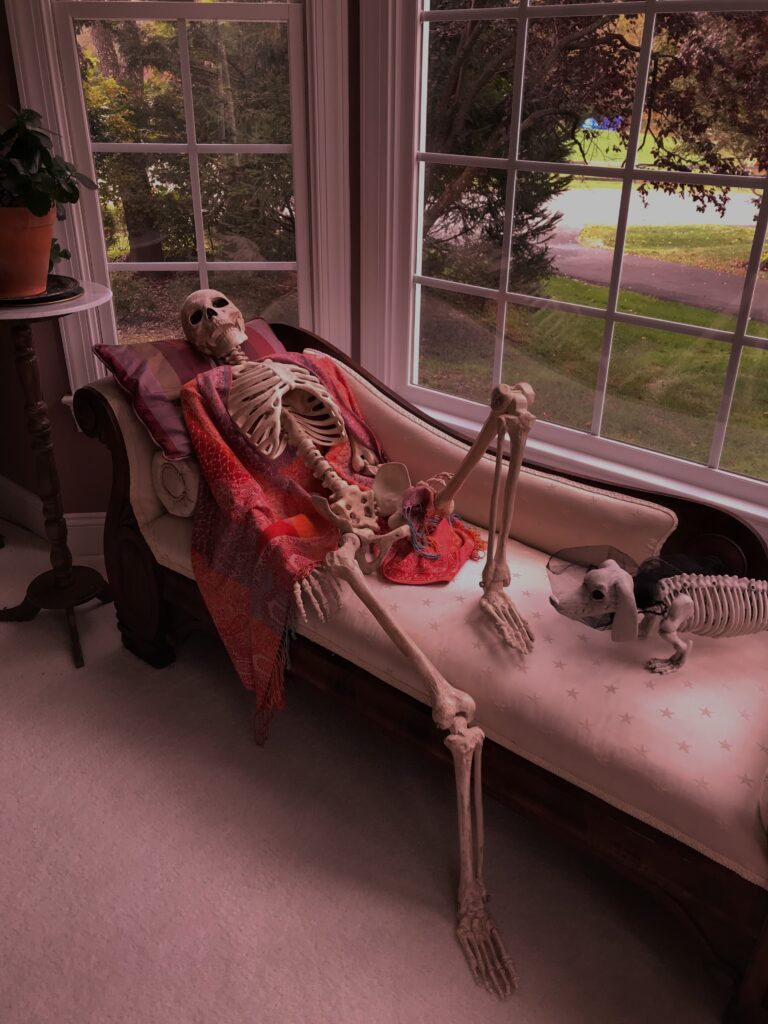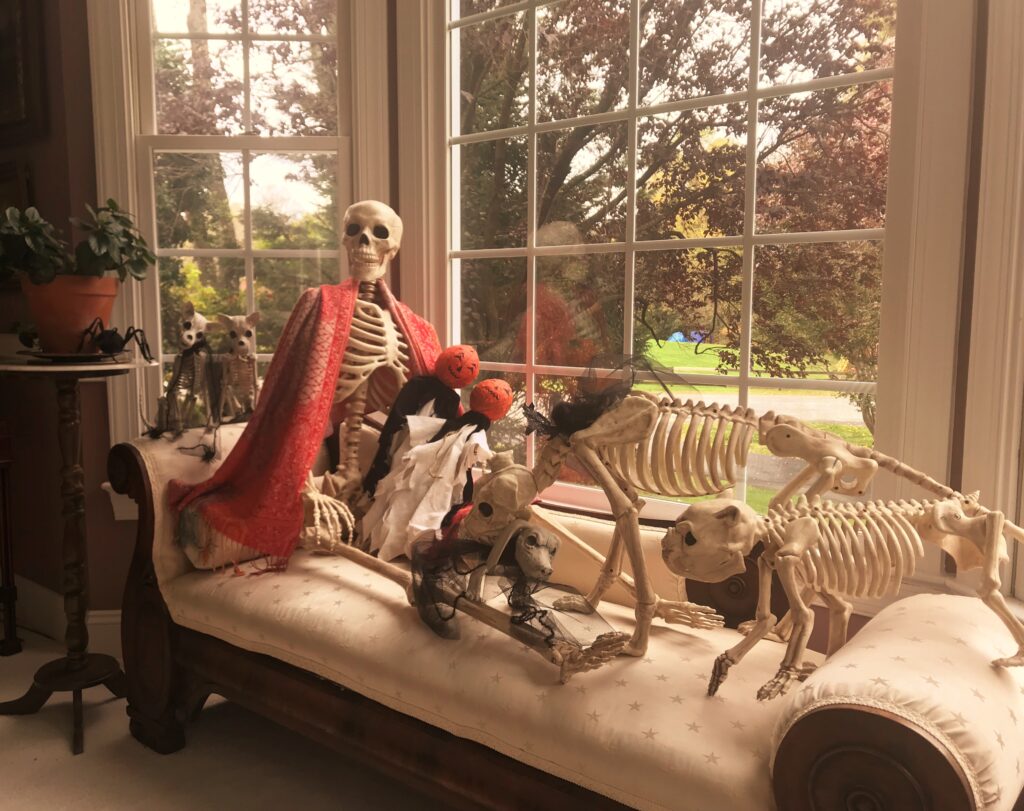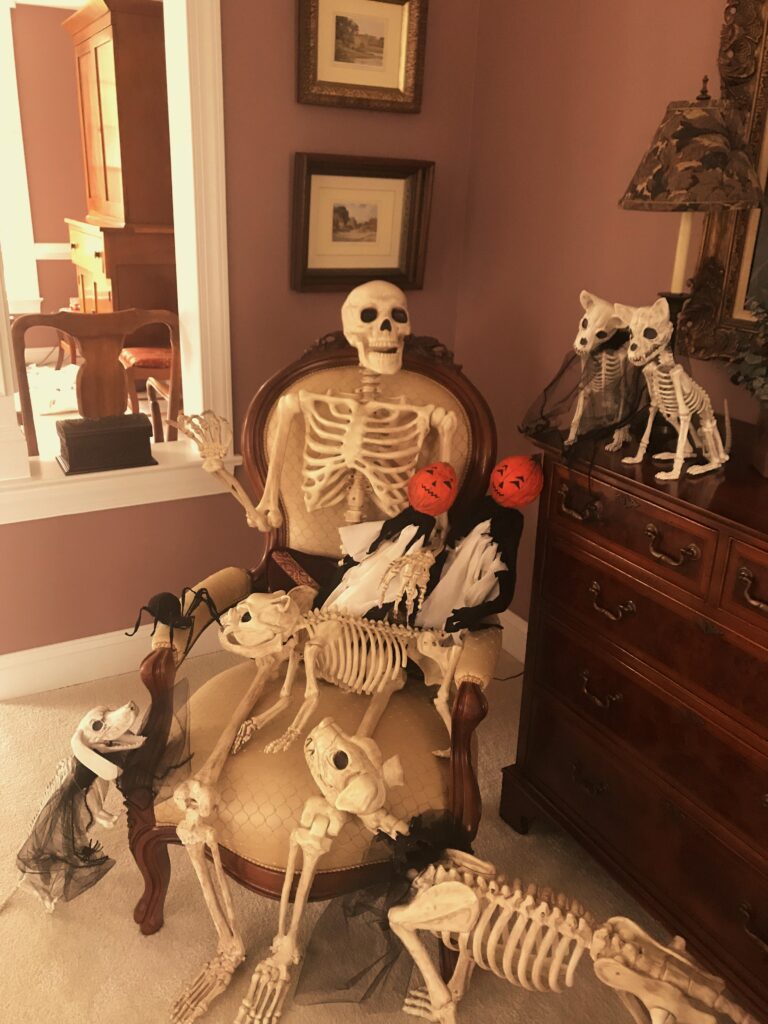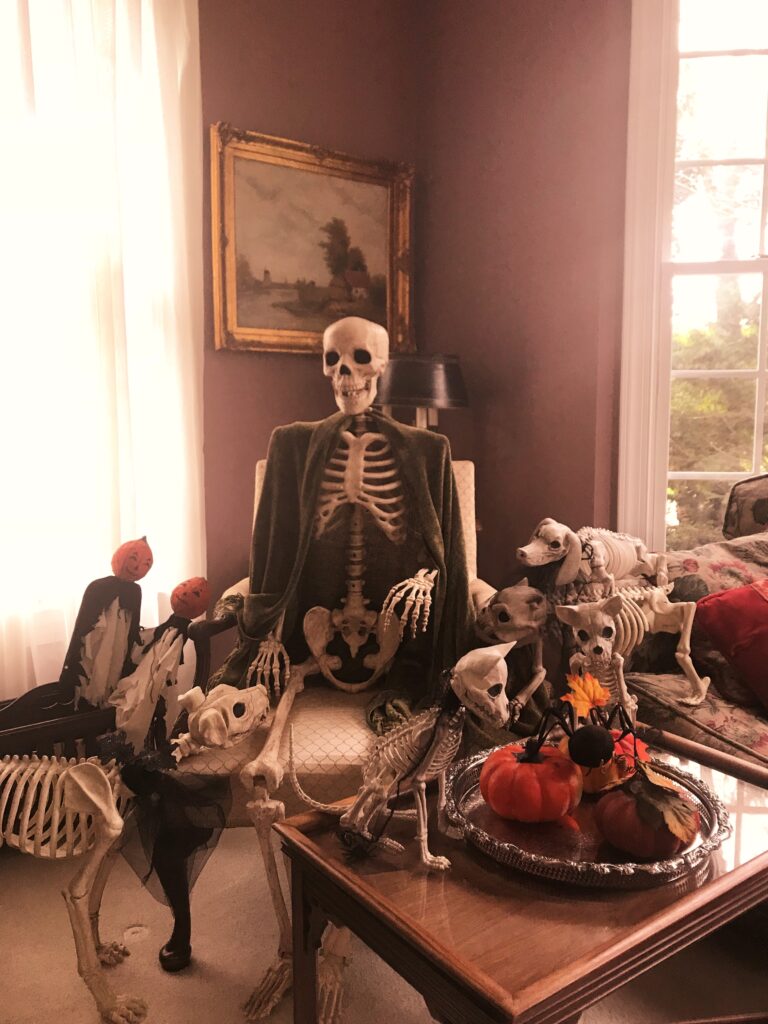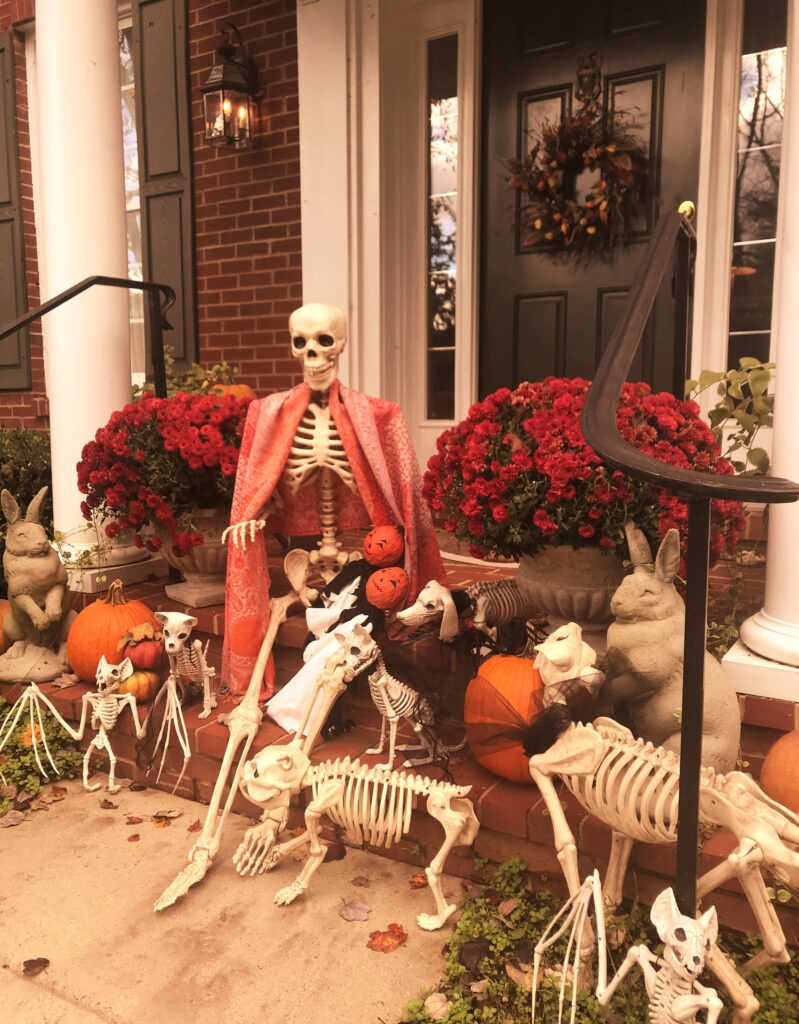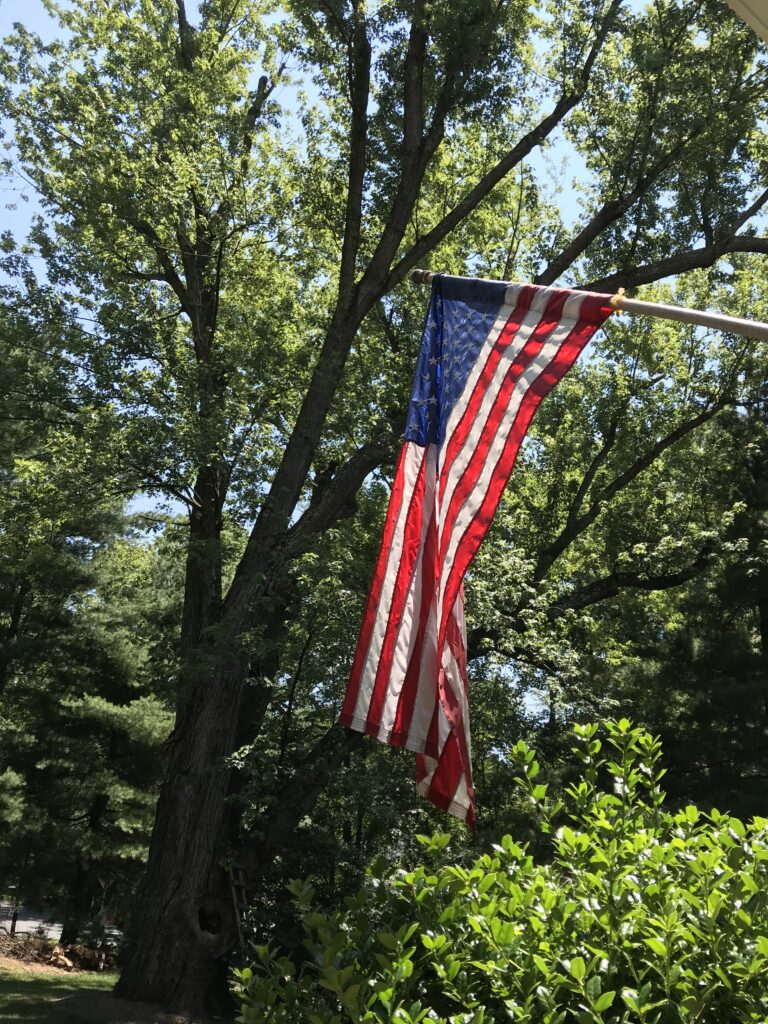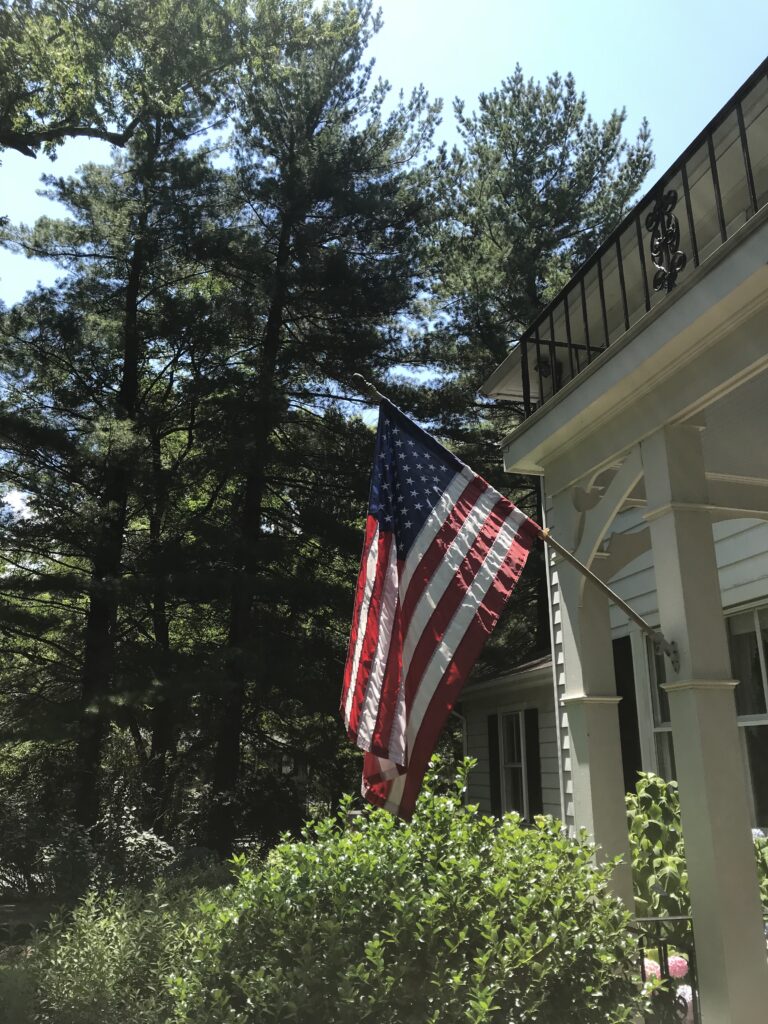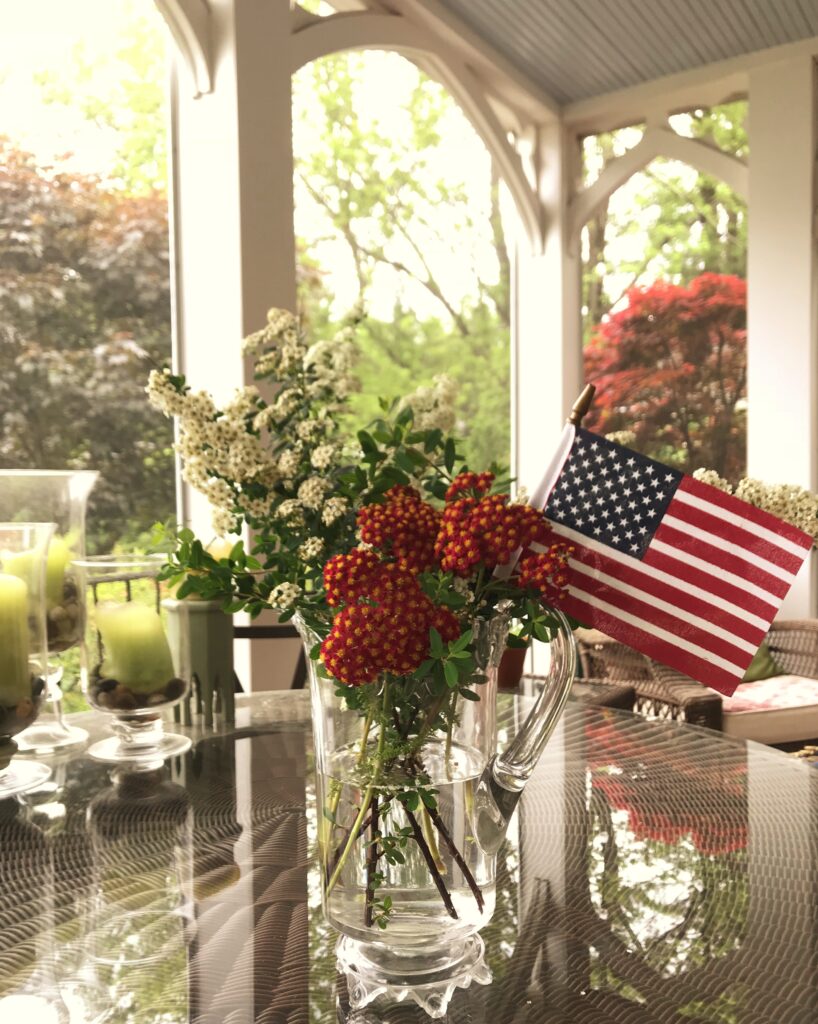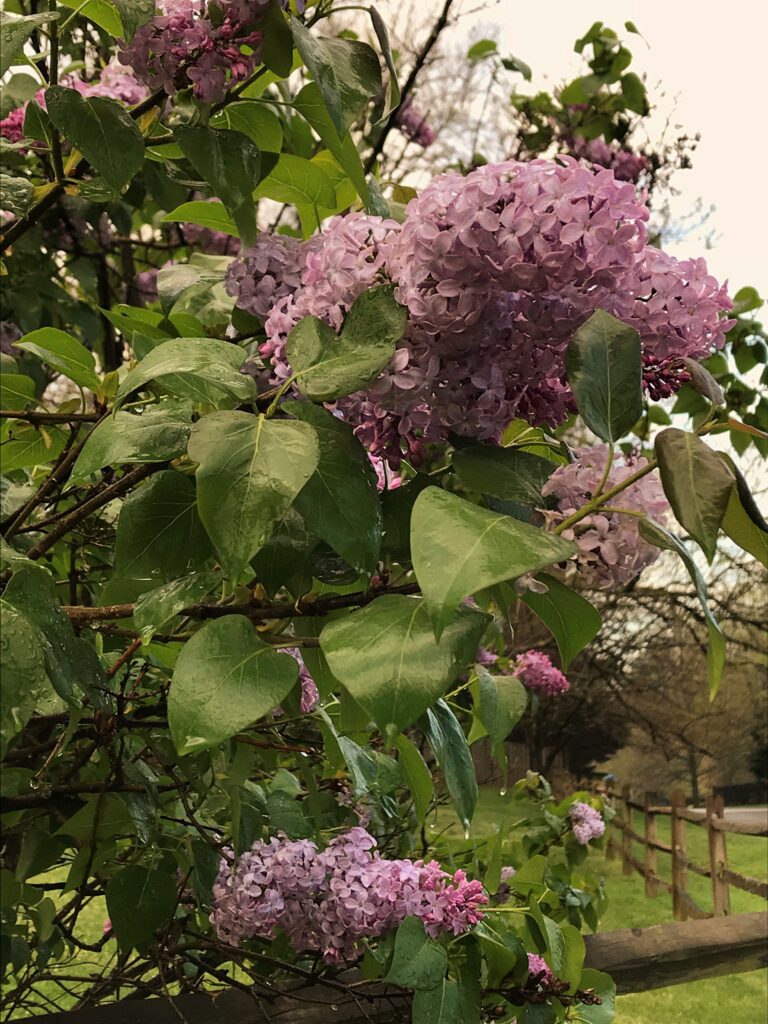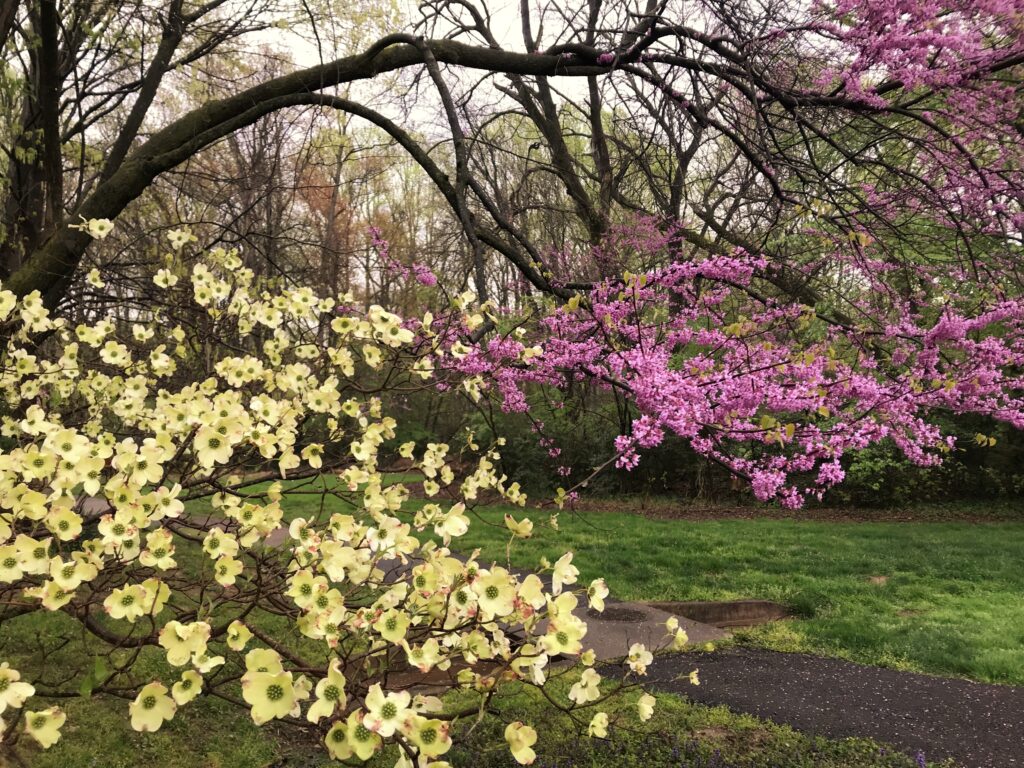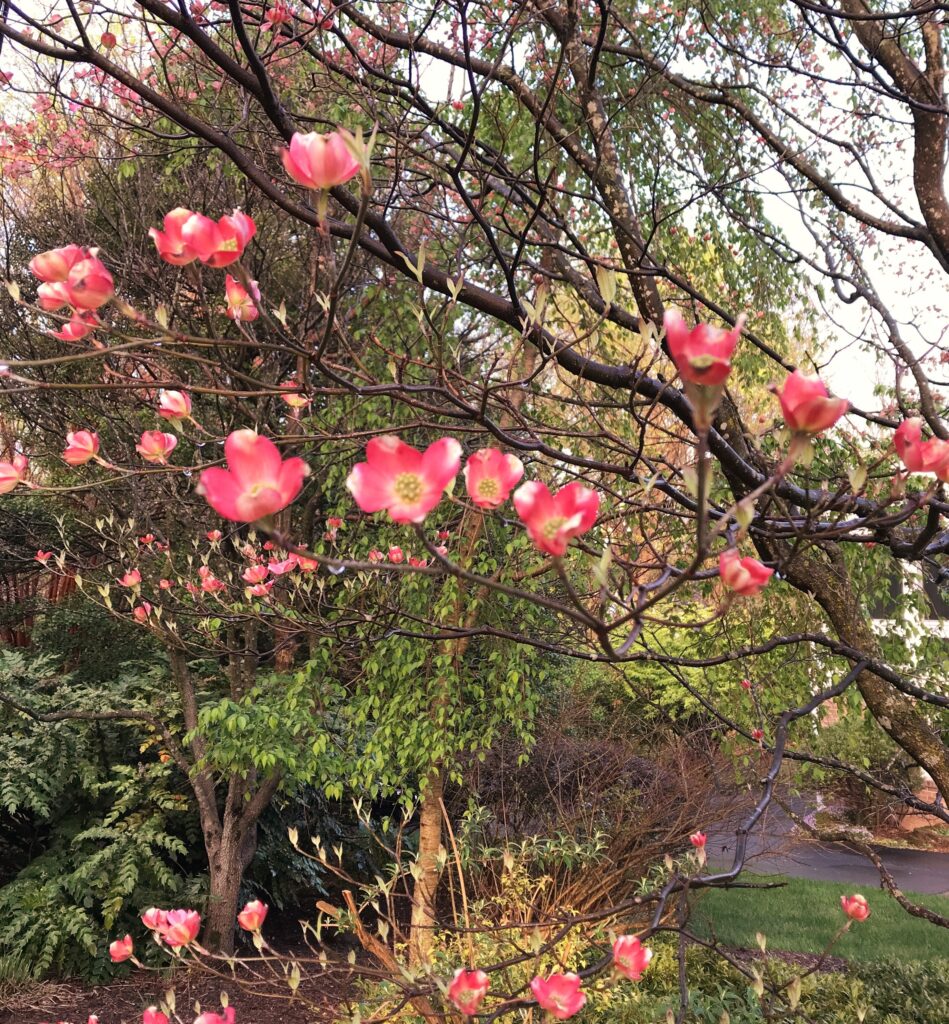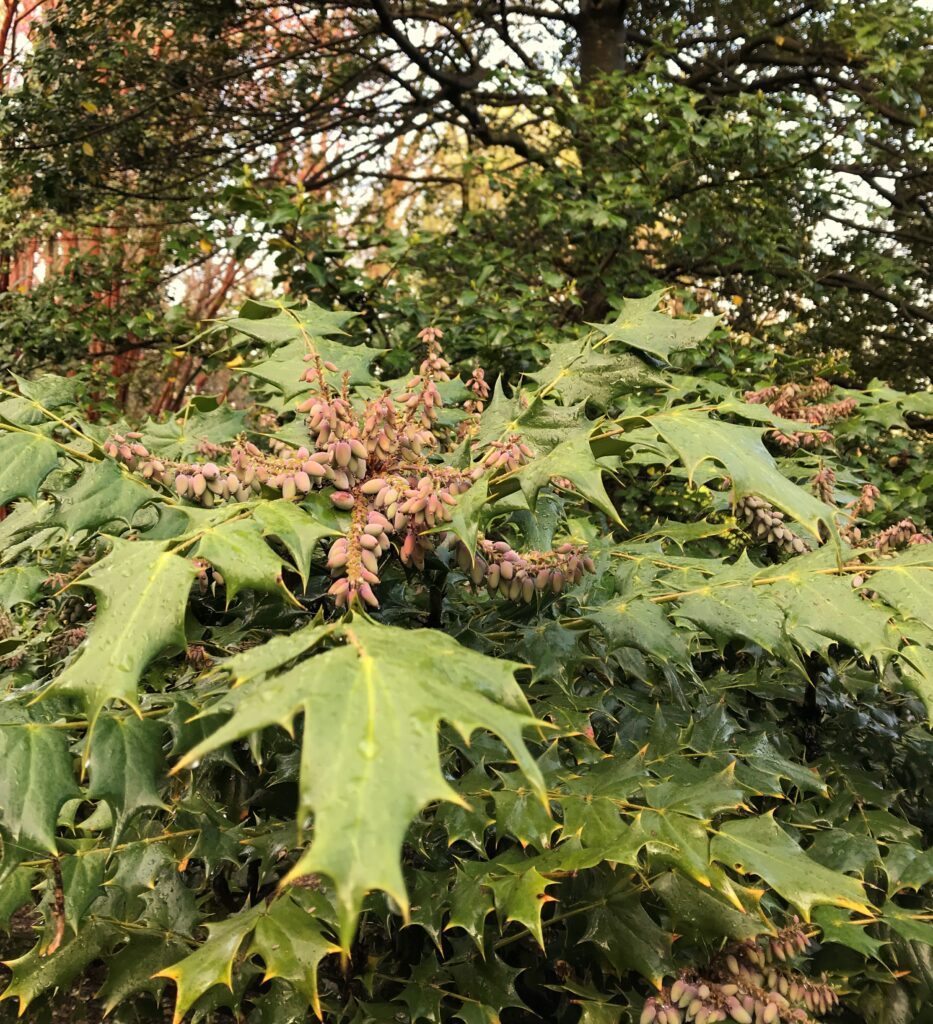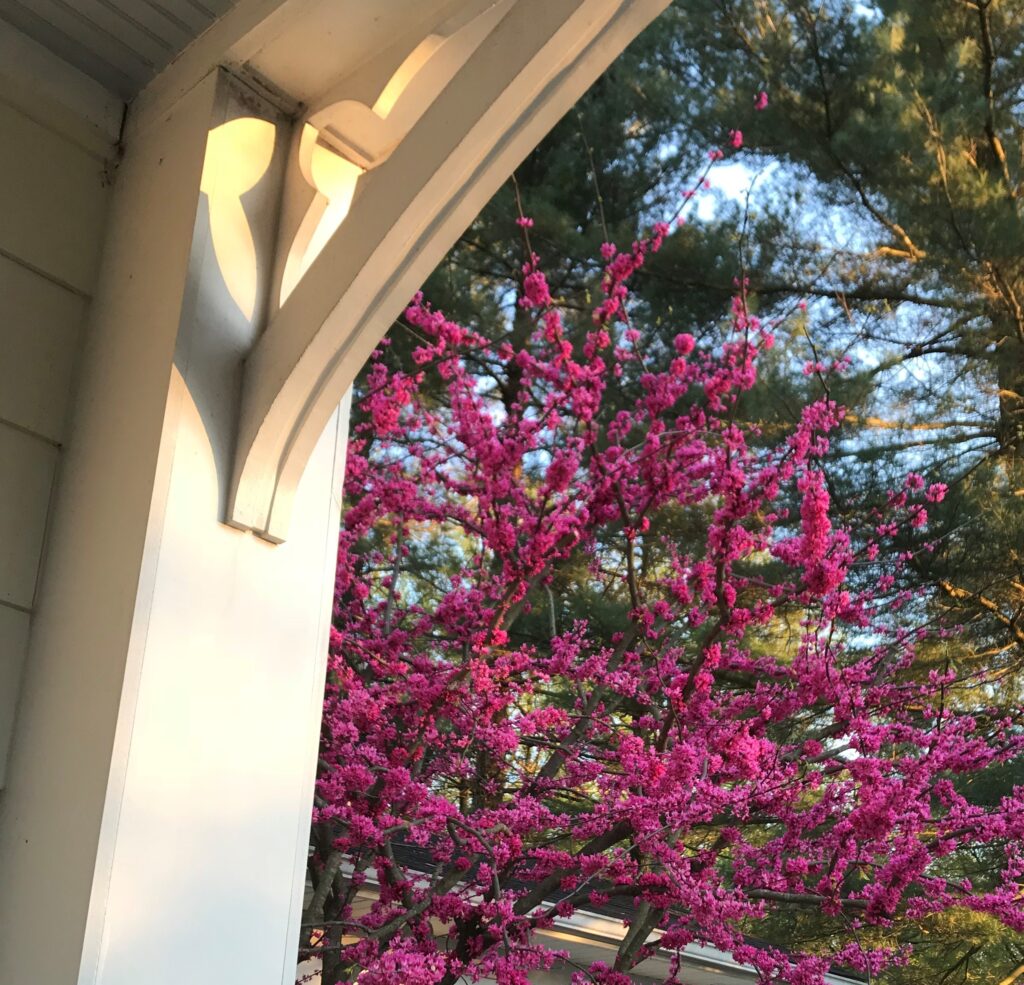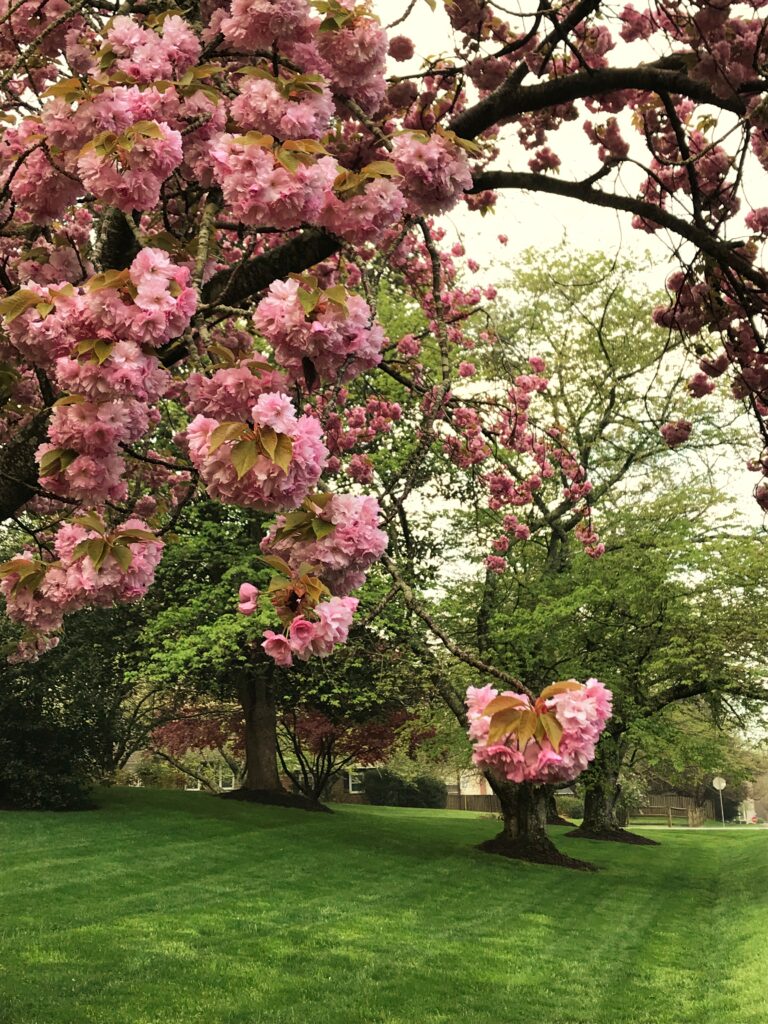This year’s peculiar pandemic Christmas season has been lacking (and lackluster) in too many ways. But it also brought about a return to some activities that I thought might have been largely confined to the past. In an earlier post, I wrote about how my daughter and I, home bound together in the family pod, were inspired to make a new type of Christmas ornament for the first time in years. It wouldn’t be right to consign our Band of Bulbs to a table or shelf. They needed an appropriate home for the holiday, as did our creations from years gone by. They needed a Christmas tree. No. Not just one. If all were to be accommodated, several trees were required. My daughter was adamant about this.
Last year I didn’t find the time or energy to put up the tabletop tree in our playroom. I’ve been known to grumble that this slightly bedraggled tree’s ideal location is a crowded corner of our messy basement. But this tree is particularly dear to my daughter’s heart. It’s the locus for most of the ornaments of her childhood, many of which we made together, such as bread-dough clay snowflakes, stars and candy canes, awkward wrapping paper angels, and little drums of felt and spools. It’s the place for decorations that she bought, with her own money, each December at her elementary school’s holiday book fair. Its base provides the perfect spot for a gathering of stuffed animals consigned to the attic for the rest of the year. It sets the room warmly aglow with its multicolored lights. Once fully decorated, I have to admit that it’s a wonderfully cheery sight. And when positioned in a corner just so, its pronounced slant is barely noticeable.
We hadn’t put up a tree in my mother’s house next door since her relocation to Virginia three years ago. Again, with time on her hands and a general absence of social activities, my daughter took the lead. Nana’s house, she insisted, must have a tree. Wasn’t there one lying forlorn, in pieces, in the basement? It’s been eleven years, when we spent Christmas in Atlanta, since she’d seen the ornaments my parents and I had collected and crafted over the years, the ones I remember so well from my childhood. Even the hand-written, idiosyncratic labels on the boxes bring me smiles and vivid recollections: Handmade Fancy Balls. Santa Makings. Big Red Balls. Angels & Rudolfs. So it was a special pleasure to unpack these vintage treasures again with my daughter, as Mama and I recounted the stories of Christmases past that they prompted.
Even some of the smallest of trees were decked out in lights and baubles this year at my mother’s.
Back at our house, the three skinny alpine trees in the dining room serve as the setting for most of our cork and pinecone people, pasta angels, Cape Cod scallop shell angels, and now our Bulb Buddies.
The big tree in our living room was the last to go up. We decorated it over a period of nearly a week. No ornament, even those that were damaged or funny-looking, was left out this season. Each one found a place on the tree. I bought no new decorations at all this year. None, indeed, were needed.
The boxes of holiday trappings stored at my mother’s house and mine would likely be considered mere clutter by many. But to me, to my daughter, my mother, and to some degree, even to my husband, these battered containers are filled not with stuff, but with happy memories. They spark joy. And joy has been elusive and fleeting throughout 2020. Let’s seize it, and savor it, where, when, and while we’re able.
I wrote about some of the best-loved ornaments on the family Christmas tree of my childhood in several posts from 2015. See:
Childhood Treasures on the Christmas Tree

